Free (or Cheap) College for Seniors and Retirees in All 50 States
Whether it's to complete a degree, gain new knowledge, or just for fun, seniors and retirees can go or get back to school "on the cheap."

Profit and prosper with the best of Kiplinger's advice on investing, taxes, retirement, personal finance and much more. Delivered daily. Enter your email in the box and click Sign Me Up.
You are now subscribed
Your newsletter sign-up was successful
Want to add more newsletters?

Delivered daily
Kiplinger Today
Profit and prosper with the best of Kiplinger's advice on investing, taxes, retirement, personal finance and much more delivered daily. Smart money moves start here.

Sent five days a week
Kiplinger A Step Ahead
Get practical help to make better financial decisions in your everyday life, from spending to savings on top deals.

Delivered daily
Kiplinger Closing Bell
Get today's biggest financial and investing headlines delivered to your inbox every day the U.S. stock market is open.

Sent twice a week
Kiplinger Adviser Intel
Financial pros across the country share best practices and fresh tactics to preserve and grow your wealth.

Delivered weekly
Kiplinger Tax Tips
Trim your federal and state tax bills with practical tax-planning and tax-cutting strategies.

Sent twice a week
Kiplinger Retirement Tips
Your twice-a-week guide to planning and enjoying a financially secure and richly rewarding retirement

Sent bimonthly.
Kiplinger Adviser Angle
Insights for advisers, wealth managers and other financial professionals.

Sent twice a week
Kiplinger Investing Weekly
Your twice-a-week roundup of promising stocks, funds, companies and industries you should consider, ones you should avoid, and why.

Sent weekly for six weeks
Kiplinger Invest for Retirement
Your step-by-step six-part series on how to invest for retirement, from devising a successful strategy to exactly which investments to choose.
If you're a retiree, it's safe to say you're probably already a bona fide graduate of the school of hard knocks — your decades of full-time employment, either at home or in the workplace. However, there’s still a lot you can learn in retirement. A commitment to lifelong learning can have enormous benefits, whether your goal is pursuing a second act in your career, keeping your brain sharp or finally completing that long-sought-after degree.
Taking classes is one of the best things to do when retired and bored, as it provides a healthy dose of both leisure and purpose.
Across the country, retirees can take advantage of free (or close to it) college courses for older residents at various public and private institutions. Some programs and organizations allow individuals as young as 50+ to participate.
One such organization, the Osher Lifelong Learning Institute(OLLI), offers 125 programs on university and college campuses across the country that provide "intellectually stimulating, non-credit courses and educational activities, specifically designed for people who are 50 years of age or older." By paying an inexpensive membership fee, which varies between colleges, seniors can attend noncredit courses solely for the sake of learning — there are no tests or grades.
Keep in mind that most free-tuition programs make older students wait to sign up for classes until the registration for paying students has closed and the add-drop period has ended. In other words, paying students generally have priority, and you’ll only be able to enroll “on a space-available basis.”
In some cases, you have to go through the normal admissions process and be accepted at the college or university before you can enroll in individual classes. And while tuition may be waived, you may encounter fees to apply or register or to use labs, campus gyms, or other resources tied to a particular class. You’ll also have to pay for books and other course materials.
Many free-for-retirees programs only allow you to audit classes, meaning you won’t get college credit. That might be right up your alley if you're not looking to complete a degree. Many classes are offered online as well as in person, so if mobility or commuting is a problem, you can still attend.
Some colleges even offer various benefits for alumni that are worth looking into if you plan on heading back to school. Namely, tuition discounts, which vary from college to college. It's worth looking into if you're considering returning to school.
Additionally, some colleges offer learning through travel opportunities for alumni. For example, UCLA offers alumni tours all over the world, like Peru, Normandy and Iceland, led by world-class professors.
Here's what you need to know about free (or cheap) college for seniors and retirees in all 50 states.
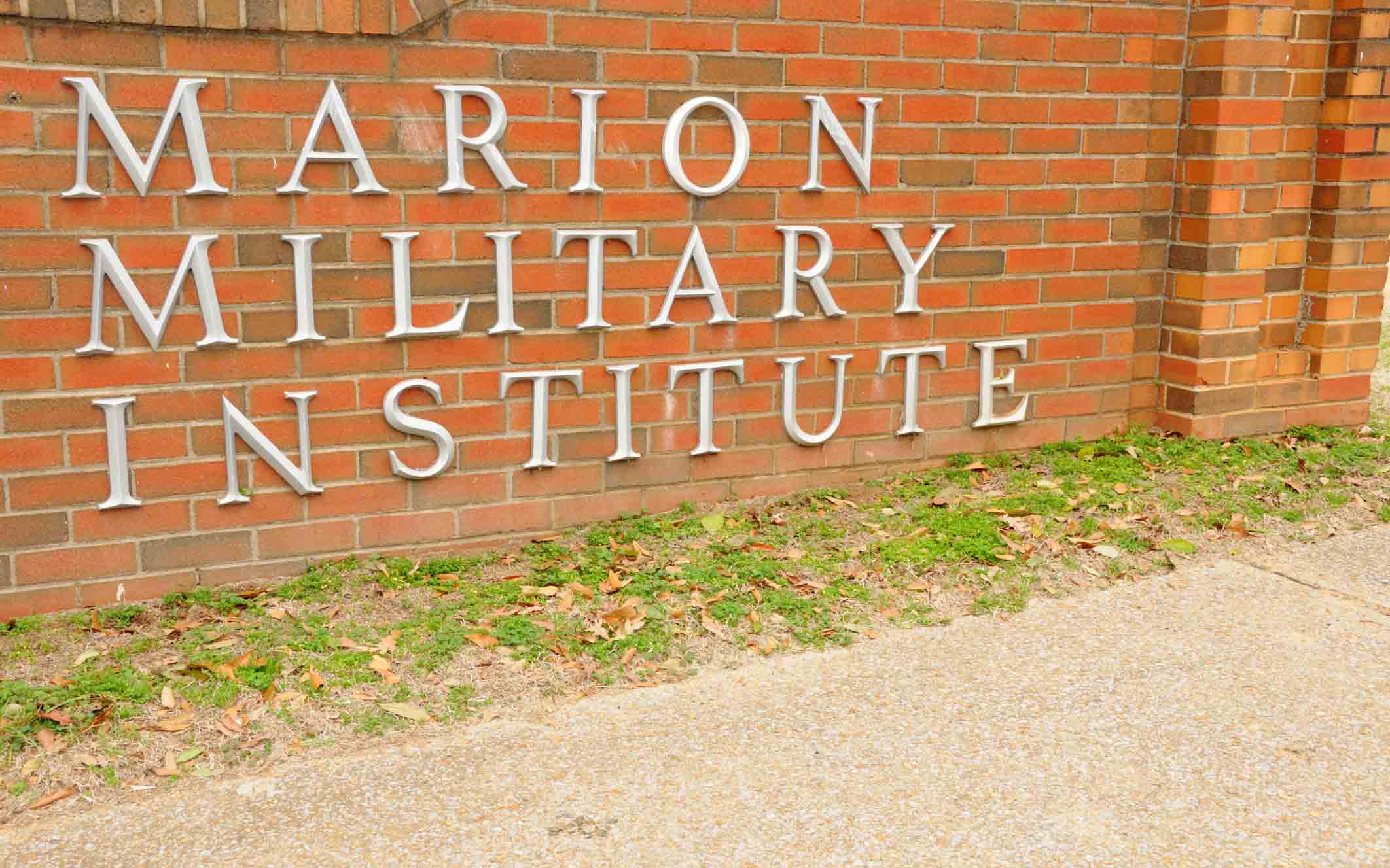
Alabama
All Alabama residents age 60 and older can take advantage of free tuition at any two-year public college in Alabama, according to the Alabama Commission on Higher Education. First, students must meet the school’s admission requirements, which you can find by contacting the financial aid office of any of the community and technical colleges in the Alabama Community College System, including Calhoun Community College in Decatur (the largest school in the system), Alabama Technical Institute, Marion Military Institute and the University at Montgomery.

Alaska
The University of Alaska waives regular tuition for permanent Alaska residents ages 65 or older. Those who qualify for the Senior Citizen Tuition Waiver must fill out a short form and may not register until the first day of instruction. Enrollment is offered on a space-available basis (there is no wait list). Senior citizen tuition waivers cover tuition only and some courses have associated fees that are not covered by the waiver.

Arizona
Arizona’s tuition deal for older residents isn’t a freebie. All the campuses of Maricopa (County) Community Colleges offer a 50% discount on tuition rates to residents 65 and older who live in the county. But you must pay registration and course-specific fees. All for-credit classes in the college system with open seats are eligible for the senior discount. There’s no discount for non-credit courses.
If you're seeking a classroom environment designed only for seniors, Arizona State University and the University of Arizona have an Osher Lifelong Learning Institute, which partners with over 125 universities nationwide to offer noncredit courses to adults over the age of 50, with affordable membership costs.

Arkansas
For residents 60 and older who reside in Arkansas, tuition and student fees are waived at all state-supported colleges, including community colleges. This freebie applies only to for-credit courses and is offered on a space-available basis.
Arkansas seniors may also participate in courses on healthy lifestyles, Alzheimer’s disease and dementia, opioid education, chronic pain, mind and body programs and similar topics for free through the Arkansas Geriatric Education Collaborative (AGEC).

California
The California State University system knows how to take care of state residents aged 60 and over. Tuition is waived for all state-supported colleges. Many of the University of California campuses also offer courses for students who are at least 50.
California state colleges waive fees, including tuition, applications, health services, and instructional-related activities. That said, fees can vary, so check with your school of choice first. Senior citizens can enroll in regular-session, undergraduate-level courses in subjects such as art, the humanities, agriculture and computer studies.
Many of the University of California campuses also offer 200 non-credit courses per year for students who are at least 50. For example, UCLA offers courses, lectures and guided museum tours as part of the UCLA OLLI program. A basic membership starts at just $50 per year. A Plus Membership is $295 per year. Some classes are free and others require a modest registration fee.

Colorado
Lifelong Learners age 60 and older can attend up to two (2) eligible undergraduate in-person courses at the University of Colorado Denver (Denver Campus) on a non-credit/non-tuition basis. The only expense that Lifelong Learners must personally cover is a Campus ID; however, this may change in the future. These classes are on a space-available basis with the permission of the instructor.
Bear in mind that you won’t get college credits for those classes. While student services like student health, counseling and event tickets are not available to lifelong learners, technology charges will not be assessed. You cannot take classes that require a lab or special equipment, computer classes, courses with the university’s Division of Extended Studies, or any courses requiring additional fees.

Connecticut
Connecticut waives tuition at the University of Connecticut, Connecticut State University, and the state’s 12 regional community-technical colleges. Credits from the courses can be applied to a degree. There are parameters: The tuition waiver kicks in when the applicant, age 62 and older, is admitted to the university and has enrolled in a fall or spring degree program. National Guard and Veterans can also take advantage of this program. Paying students have priority access to these classes, so seniors can enroll after registration is completed. And while you do get free tuition, any additional class fees are on you.
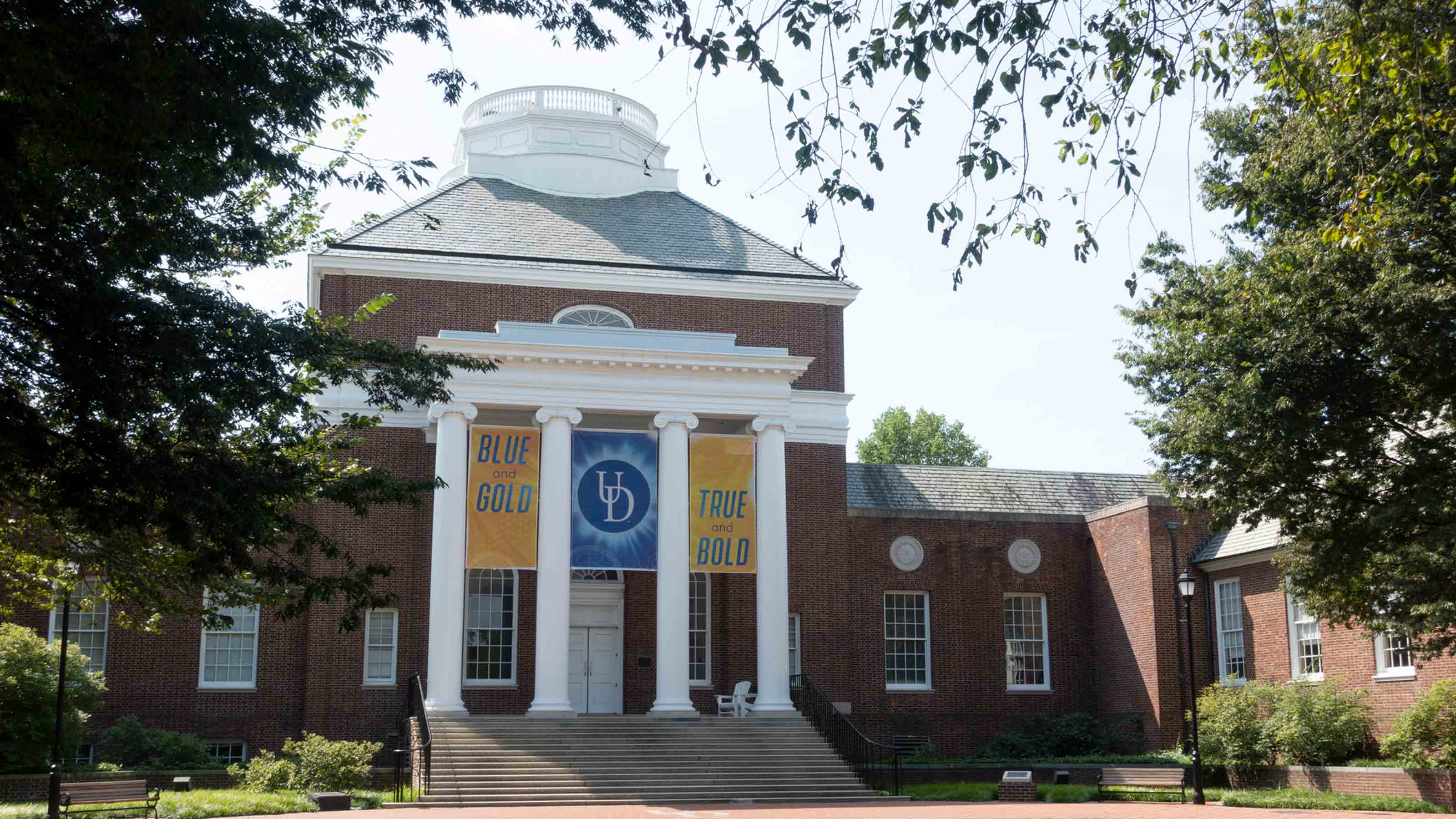
Delaware
Delaware law makes it possible for residents aged 60 and older to attend college without paying tuition. The University of Delaware’s Over-60 Tuition-Free Degree Program uses a space-available format and does not cover continuing education classes. Seniors must apply to be admitted to an undergraduate degree program or a graduate program.
Classes are made available to older residents after tuition-paying students have signed up. Older applicants must pursue a formal degree and meet all the requirements for that class (for example, if it’s open only to students majoring in that subject). Free tuition doesn't mean everything is free: 60-and-over students must pay for lab fees, books and other supplies related to the course.

District of Columbia
Tuition and fees that are normally required for students will be waived for qualifying seniors, 65 years or older, if space is available. This applies to all courses held at the District of Columbia Community Colleges and Universities. You must be a resident of the district.
Senior citizens 65 and up may also audit undergraduate courses from Georgetown University’s School of Continuing Studies. These students pay a fee of $50 per course. The Senior Citizen Auditor Program is part of the university’s mission of educating “women and men to be reflective lifelong learners, to be responsible and active participants in civic life, and to live generously in service to others.”
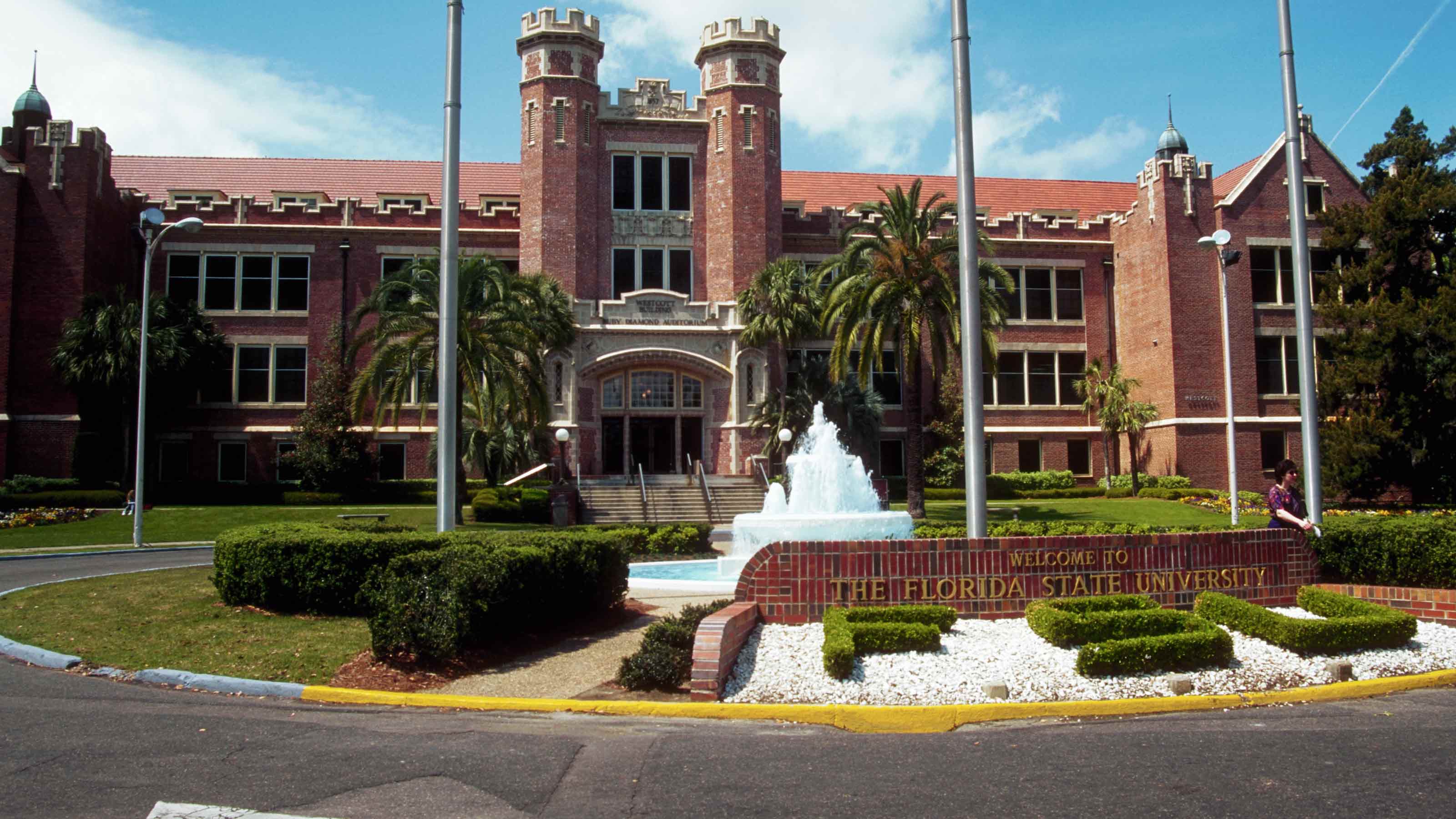
Florida
The Florida college system waives application, tuition and student fees for those age 60 and above, but you won't receive credit for courses you attend, which are only available on a space-available basis. You must live in Florida for 12 months to establish residency before applying. Some of these lifelong learning programs include offerings at the University of South Florida, Florida Atlantic University and the University of Miami. Paying students, as well as state employees, get first dibs on classes.

Georgia
As in a few other states, Georgia's state constitution affirms free education for individuals age 62 and older. The Georgia Board of Regents provides details for registration. All of the public colleges and universities in Georgia’s state university system, such as Georgia College and State University and Georgia Tech, are included.
The Osher Lifelong Learning Institute at the University of Georgia offers 50+ non-credit courses per year, as well as shared interest groups exclusively for members and travel opportunities. Memberships cost $72 a year. You'll also pay a fee per class and for parking. Retirees taking advantage of Georgia’s free college courses may also have to pay nominal fees, such as application fees and books. Paying students are first in line, with admission on a space-available basis.

Hawaii
The Senior Citizen Visitor Program (also known as Nā Kūpuna Program, which means "honored ancestor") gives no college credit for classes attended, and no permanent records are kept. But if you're over 60 and up for learning something new, attending for free is a bonus. The Senior Citizen Visitor Program allows residents to attend up to two courses per semester free of charge with instructor approval. The program is available at many state and community colleges in the Hawaii system. You will be responsible for paying for your parking permit ($20 per semester) if needed.

Idaho
The University of Idaho permits Idaho residents age 60 and older to enroll in courses on a space-available basis. You may incur costs for books and supplies and lab fees, and you'll also be responsible for paying a $20 registration fee, plus $5 per credit.
Under this program, participants only get class instruction and library privileges. You won’t get the perks associated with being a paying student, including free admission to athletic events or access to the recreation center.
Other Idaho institutions offering free or low-cost tuition to seniors include Boise State University and Lewis-Clark State College. The College of Southern Idaho offers free tuition for lower-division courses to students aged 60 and older.

Illinois
When you turn 65 in Illinois and your household meets low-income requirements, tuition is waived for regularly scheduled for-credit courses at several notable schools — University of Illinois, Southern Illinois University, Chicago State University, Eastern Illinois University, Governors State University, Illinois State University, Northeastern Illinois University, Northern Illinois University, Western Illinois University — as well as all public community colleges. Private universities, such as Northwestern University, also offer programs for lifelong learners.
There is a tuition waiver in the state that permits senior citizens, 65 years of age or older, to enroll in regularly scheduled credit courses at public institutions of higher education without the payment of tuition. Anyone taking advantage of this must first be accepted at the university or college. You’re on the hook for other fees, including student fees, parking and lab fees. Tuition-paying students get first dibs at the classes; you’ll be able to join if there’s space.

Indiana
When it comes to free or reduced tuition costs, Indiana isn’t as generous as other states. Its residents age 65 and older can enroll in for-credit courses in degree programs at the state’s public universities at 50% off the normal in-state tuition cost, up to nine credits per semester. Still a substantial savings over standard tuition. Lab fees, as well as application and registration fees, are the responsibility of the student. Participating schools include those under the Indiana State University and Indiana University flags.
Senior Scholars is a unique program offered at Ivy Tech that enables Indiana residents aged 60 and older to take credit courses at Ivy Tech tuition-free. You must meet certain requirements: Be an Indiana resident, be 60 years of age or older at the start of a semester, possess a high school diploma or GED, be retired from your primary vocation (does not apply to homemakers) and you can not be employed on a full-time basis.

Iowa
The University of Iowa has a program called "Senior College" for anyone over the age of 65. A committee of retired UI faculty and staff members teaches the classes. The volunteer committee works in cooperation with the Association of Emeritus Faculty and the University of Iowa Retirees Association and contracts with the UI Center for Advancement to handle registration. Many courses meet for four 2-hour sessions, and typically cost around $30.
Simpson College also offers non-credit classes tuition-free, and Des Moines Area Community College offers students 62 and over one free for-credit course per semester.
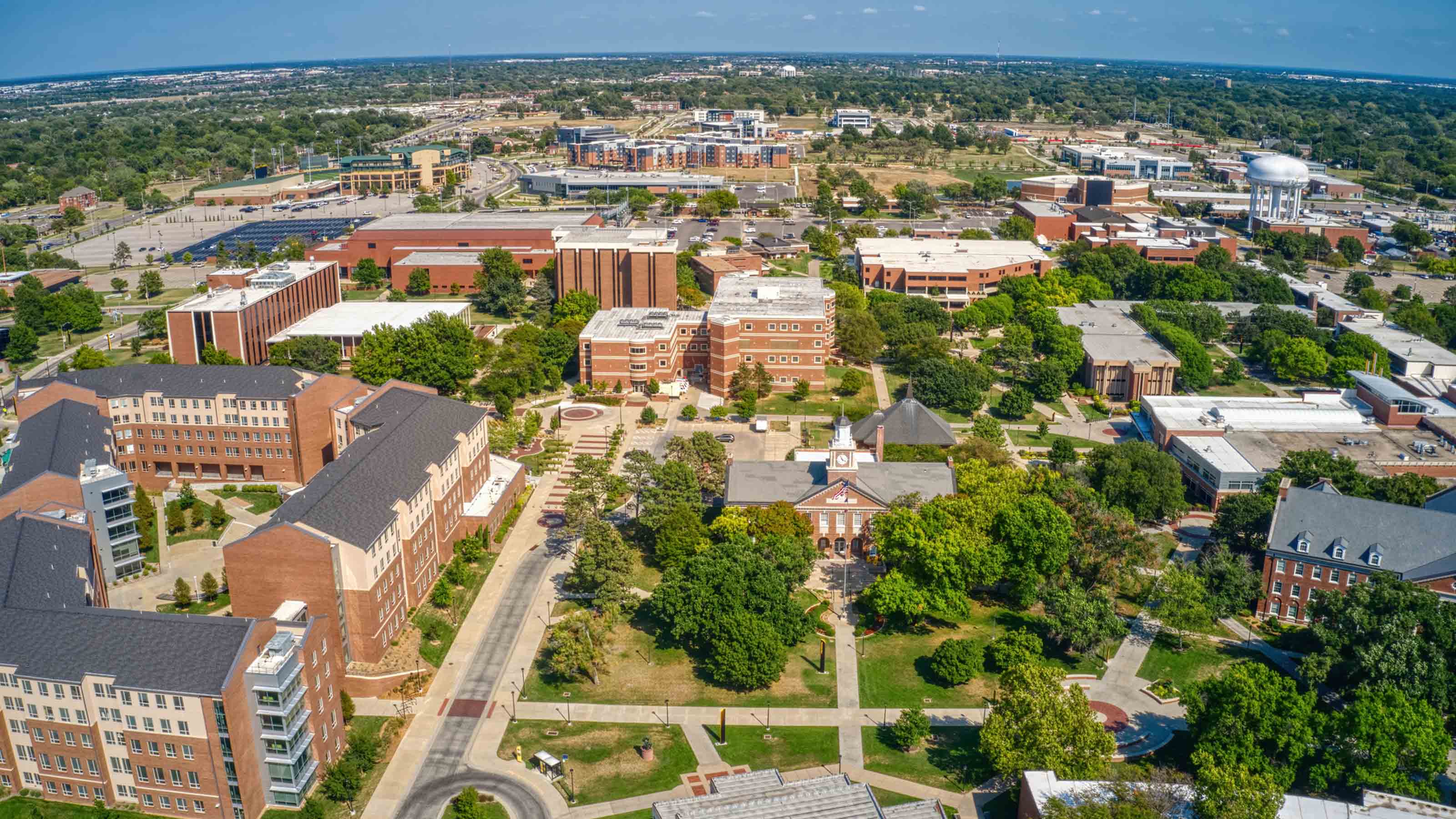
Kansas
Kansas residents aged 60 and older can audit courses (meaning no college credit or grade) at many state institutions on a space-available basis.
One school is the University of Kansas, which requires that these older students apply to be admitted as non-degree-seeking students or graduate students. Other schools include Washburn University and Johnson County Community College. Johnson County Community College charges a small fee of $16 per credit hour.
The registration process varies: The University of Kansas and Wichita State University, for example, require senior auditors to apply for admission. Online or in-person courses may be offered. Residents of Kansas aged 60 years and older must present a Medicare card or driver's license to validate age.

Kentucky
Residents of Kentucky age 65 and older can take classes for free on a space-available basis at most of the state’s public colleges and universities. Generally, fees are the responsibility of the student. Each school can also provide information on in-person versus online courses.
Kentucky State offers free tuition to individuals who are classified, by admissions, as residents of Kentucky and are at least 65 years of age. Special fees, such as course fees and parking, are not covered by this program and are your responsibility. Proof of age may be shown by presenting a driver’s license or other age verification document at the Human Resource Office.

Louisiana
Louisiana’s public colleges and universities waive tuition and registration fees for seniors 55 and older. You’ll pay half price for “reference books, manuals, and other instructional aids that are required by any course where the student is enrolled when purchased from a public college or university-operated bookstore.” You must be a Louisiana resident to attend.
The University of Louisiana at Lafayette offers a 60-plus tuition waiver that makes it easy and affordable for seniors aged 60 and older to enroll in university courses. Tuition is free and fees are reduced through this program, but you will have to pay technology, academic excellence, operational, building use, energy and records and evaluation fees. There is also a $30 per-credit fee for online courses. Earn a degree, audit a course, or embrace a new interest; there's a course for you and your budget.
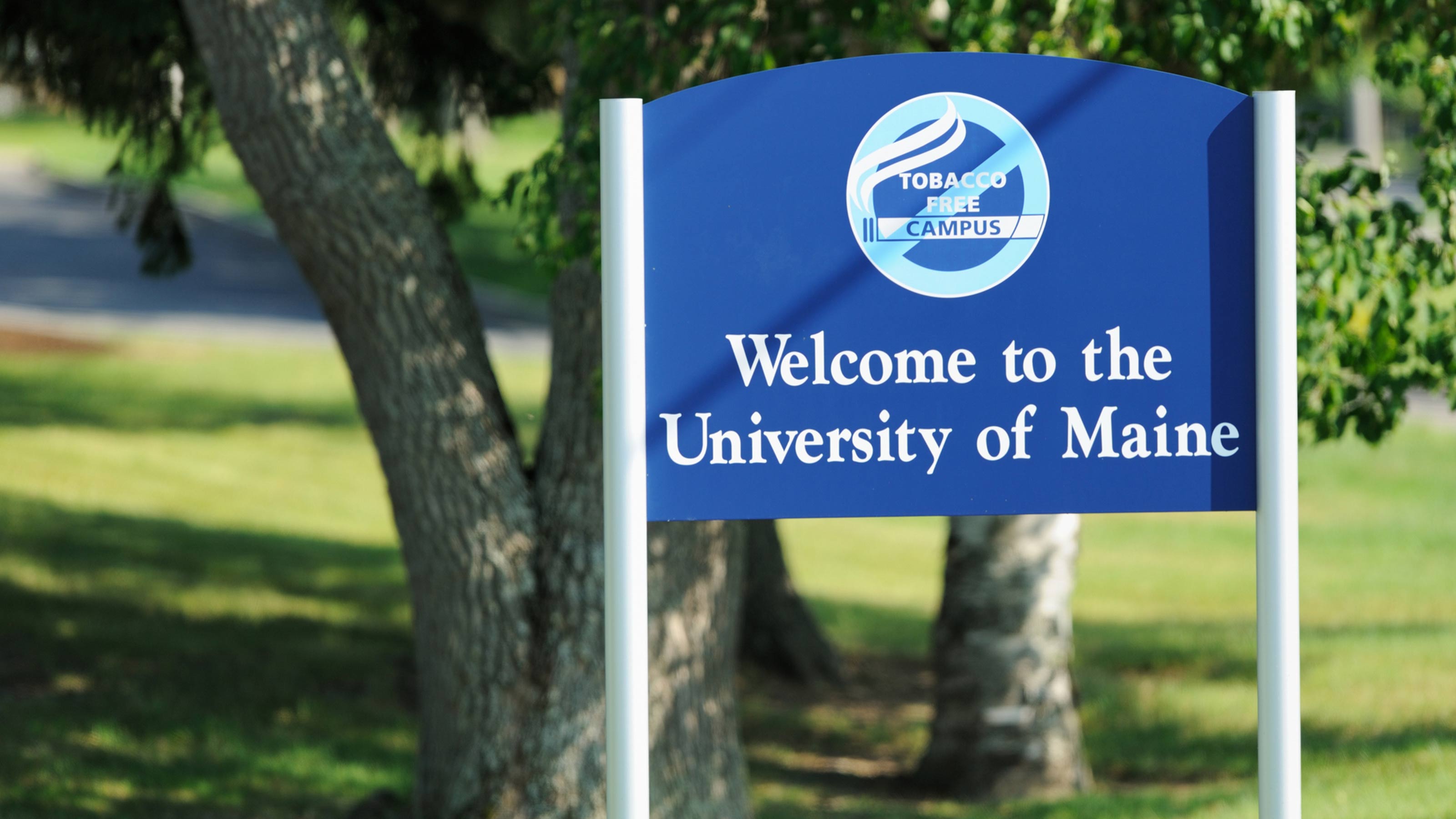
Maine
The University of Maine college system offers free college tuition for individuals age 65 and older. That includes those pesky mandatory fees that colleges and universities so famously tack on to your college experience. This freebie includes undergraduate courses for credit or audit at any University of Maine college. Acceptance is on a space-available basis.
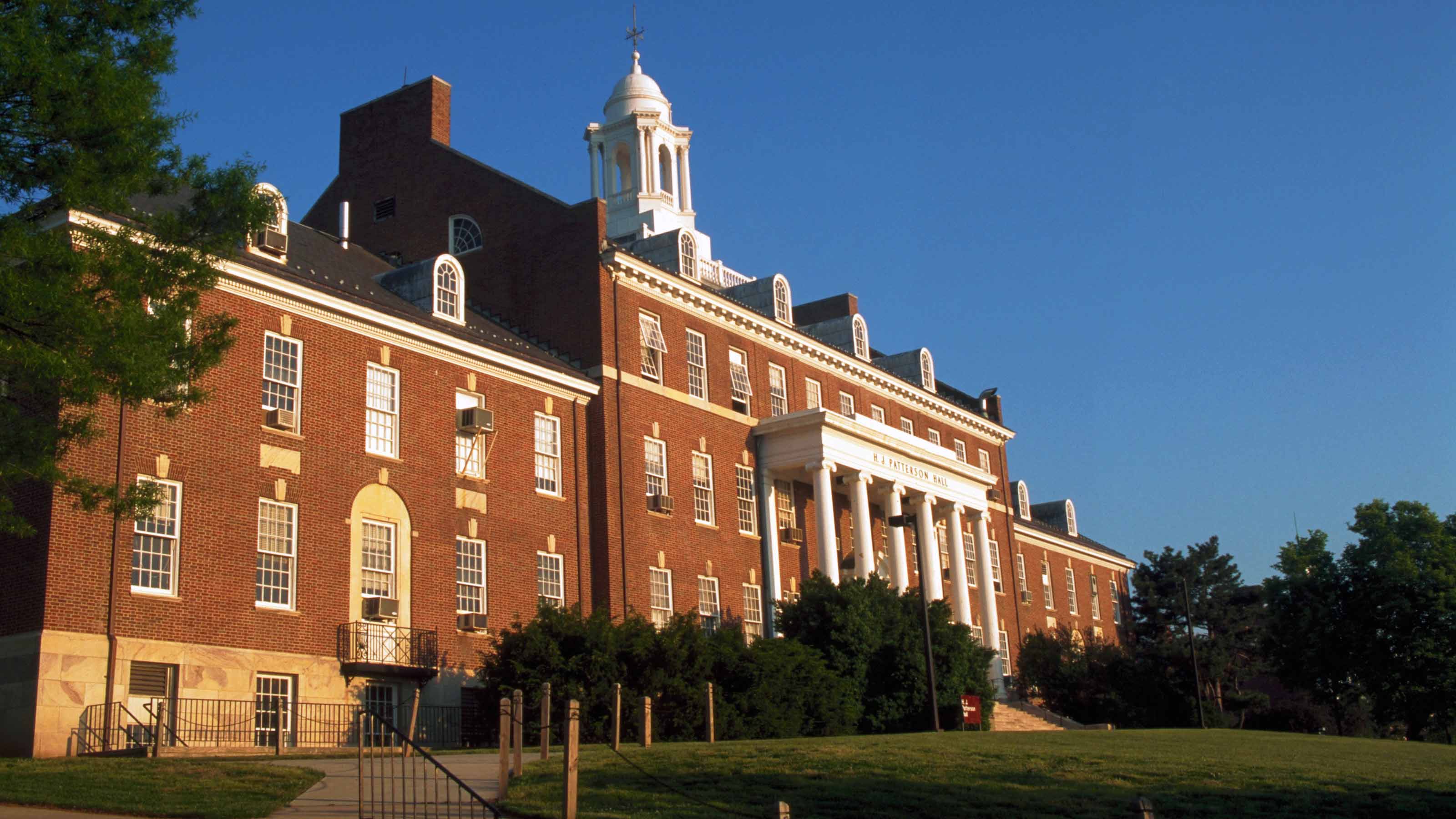
Maryland
The University System of Maryland knows retirees crave knowledge. To that end, folks 60 or older can get their tuition waived at any of the state's schools for up to three courses per semester.
Oh, and the state requires those taking advantage of this to be retired, as in their “chief income is derived from retirement benefits and [they are] not employed full-time.” It’s up to each institution to determine space availability in each course to accommodate the free-riders. Depending on the college you are applying to within the system, you may have to pay application, registration, or other fees (some schools waive those fees).
Bonus: If you apply and receive the system’s Golden Identification Card, you will be “eligible for any privileges (for example, use of the libraries)” that the particular school you’re attending deems worthy, including student events. Unless you’re enrolled as a full-time student, retirees age 60 and up cannot use the health facilities unless there’s an emergency.

Massachusetts
Public universities and colleges within Massachusetts’ higher education system waive tuition for state residents over 60, which the Commonwealth dubs “senior citizens.” Along with several other states, Massachusetts also waives tuition for Native Americans, members of the military and others. Other fees may also be waived, like lab fees and parking, depending on the school. To apply for the tuition waiver, applicants are urged to contact the school’s financial aid office.
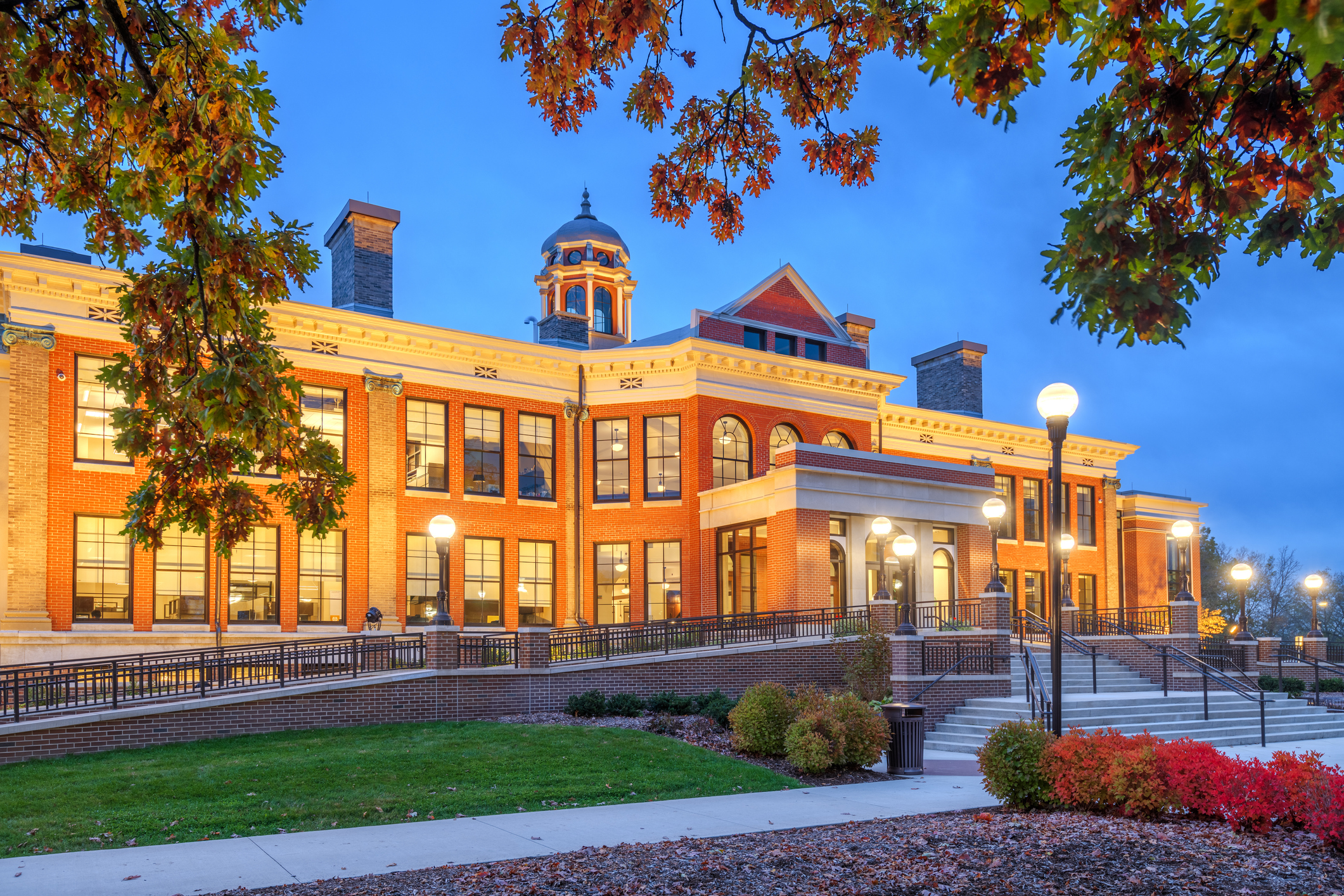
Michigan
You’ll have to do some legwork to see if the public college or university you want to attend as a Michigan state resident offers free or reduced tuition for retirees. It’s all over the place in Michigan, the state where I proudly got my undergraduate degree.
Northern Michigan University, for example, offers “full tuition scholarships” to residents 62 and older. (Off-campus and online courses are excluded). You must follow the application process (fee is waived), and you’ll have to pay for books and course fees.
More examples:
Michigan Tech: Under its senior citizen enrollment, it waives tuition and fees for folks 60 and older for as many as two courses per semester. Courses are available for audit only, meaning you won't earn credit.
Central Michigan University: Students 60 and over audit (no class credit) classes for free. You have to attend on campus.
Lake Superior State University: Students 60 and over audit classes for free. However, you must pay for all other fees necessary to attend the class.
Western Michigan University: Free tuition for up to one course per semester for locals 62 and over enrolled in its Senior Citizens' Opportunity Program in Education (SCOPE) program. You will have to pay for parking fees, books and any special course fees.

Minnesota
The Senior Citizen Education Program (SCEP), part of a Minnesota state statute, applies to all state-supported institutions (colleges, universities, tech and others) in Minnesota. Residents who are aged 62 or older may enroll in courses at the University for reduced costs, either to audit or earn college credit, regardless of whether they have already earned a degree.
Activity fees are also waived, but under the program, students must pay administrative fees (unless auditing the course) and any materials or service charges tacked onto the courses. For example, the University of Minnesota allows senior citizens to audit courses for free, but charges $20 per credit if you’re taking the program for college credit. You’re also responsible for paying for required lab, course and material fees.
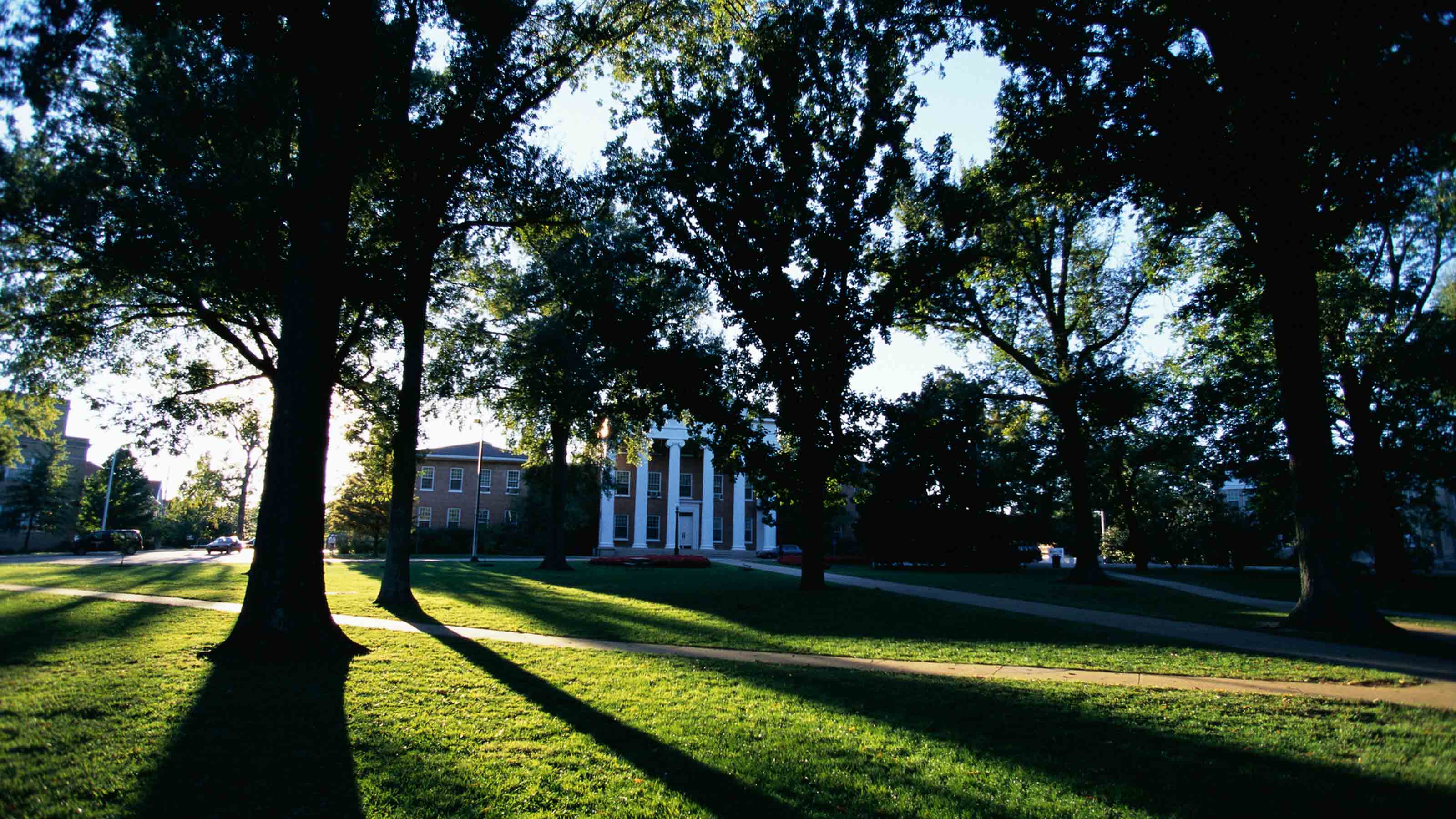
Mississippi
Mississippi, unlike 46 other states with free or nearly free college tuition programs for seniors, has no statewide law requiring public colleges to offer such tuition waivers for senior citizens. But like other states, you can find some incentives at specific universities and colleges for later-in-life learning.
Through the University of Mississippi Lifelong Learners Program, Ole Miss seniors aged 65 and over can enroll tuition-free in one academic course (up to four credits). You’ll attend classes with the young’uns at any University of Mississippi campus.
Mississippi State University also caters to seniors. State residents age 60 or older can take up to two on-campus classes per semester tuition-free, a combination of no more than 18 credit hours per academic year.
As the university points out, “senior citizen students are responsible for paying any course or laboratory fees; distance fees; cost of course materials or textbooks. Credit hours taken in excess of the specified limits of this policy shall be paid by the senior citizen as the actual tuition for those hours.”
In the case of both universities, it's important to note that seniors must go through the normal application process and space is available on a first-come, first-served basis.

Missouri
Missouri residents age 65 and older are guaranteed, under state law, a scholarship that includes a tuition waiver to any state college or university. Scholarship awardees do not get college credit for courses taken, and acceptance into a course is on a space-available basis. The school can impose a registration fee and you must go through the application process. Contact the individual school you are interested in attending for more information.
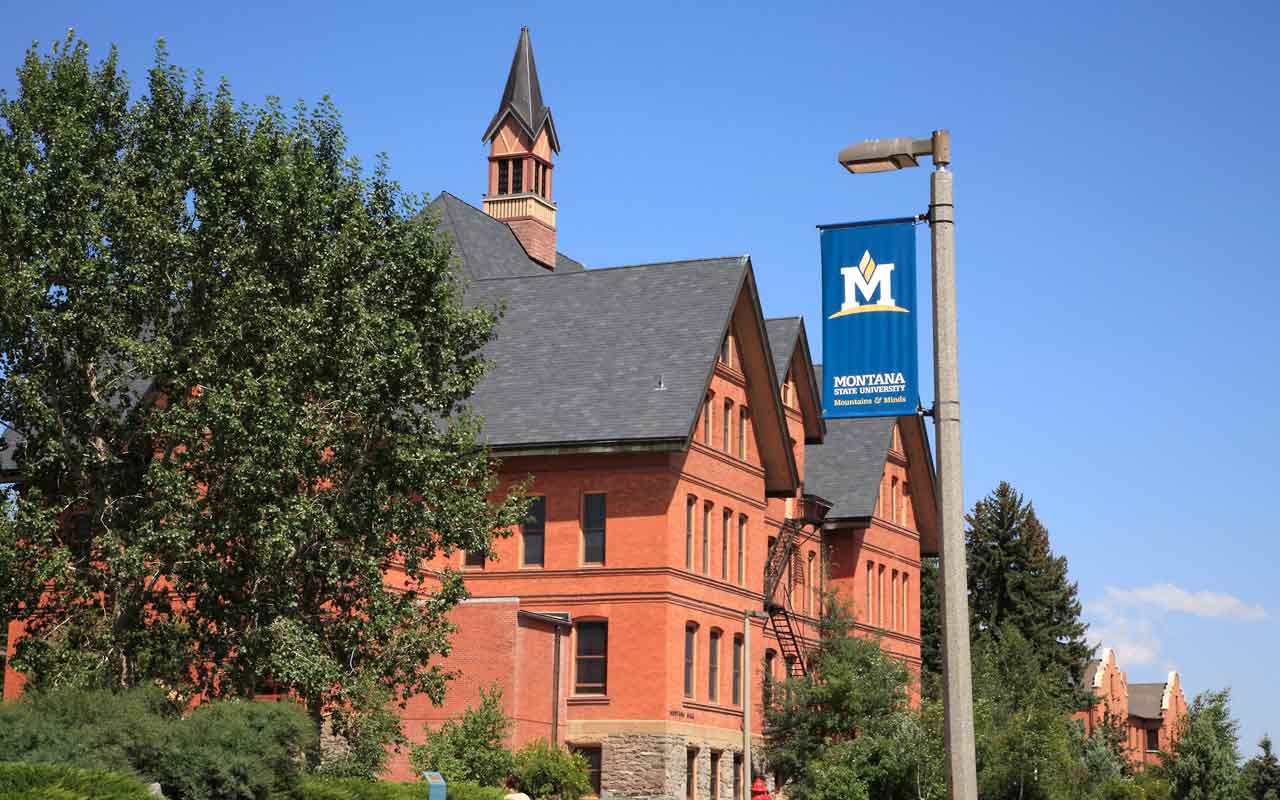
Montana
Montana State University and some community colleges in Montana welcome later-in-life learners. Schools within the system grant tuition waivers to residents age 65 and older. Only tuition is covered; all other fees are the responsibility of the senior student. Applications are accepted in the third week of the semester after yielding to tuition-paying students, which means you may have three weeks or more worth of catching up to do once accepted into a course. Campus and registration fees are not waived, but you can choose from online or in-person classes.

Nebraska
There’s no statewide program in Nebraska to waive tuition for older students, but you may find free or discounted tuition at individual colleges and universities. For example, the University of Nebraska-Lincoln offers the Senior Learning Passport Program, which allows individuals 65 and older to attend and "sit in" on undergraduate courses. The Passport costs $25, can only be used for two classes per semester, and is valid for one year. You must get the professor's permission to attend, and this program is not available online. For other colleges, you'll find everything you need to know on the Senior Citizen Tuition Waiver and Discount page.

Nevada
During the academic year, the University of Nevada, Las Vegas offers classes tuition-free during the fall and spring semesters on a space-available basis to all Nevada residents 62 years of age or older. Or, you can attend summer term courses and pay 50% of the regular per-credit-hour fees. Students pay for books, other course-related materials, and special fees such as lab fees.
The University also joins with the Osher Lifelong Learning Institute to teach seniors various topics. UNLV notes that the "OLLI at UNLV program (pdf) is designed specifically for retired and semi-retired adults who are interested in continuing their education and having the opportunity to meet new and interesting peers." Past courses include The American Election System, Films of David Lean, Nevada History and more.
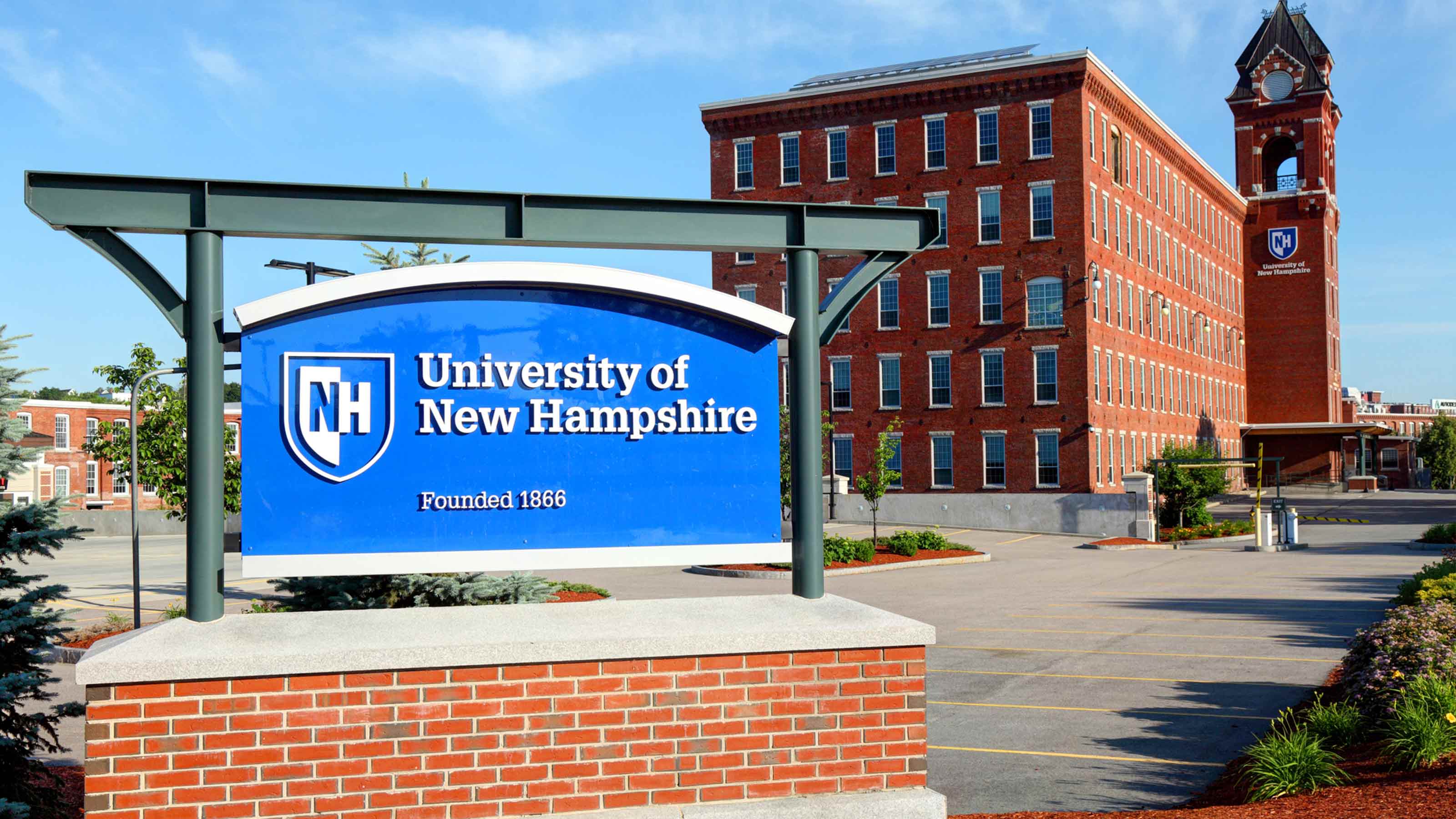
New Hampshire
New Hampshire offers free courses for seniors at state colleges. Residents age 65 and older who are not enrolled in a degree program can enroll in two for-credit courses per academic year, tuition-free at the University of New Hampshire. The student is responsible for all other costs for the class, including fees and mandatory class materials. Enrollment is offered on a space-available basis after paying students are registered.

New Jersey
In the Garden State, residents age 65 and older can take regularly scheduled courses tuition-free at the state’s public colleges and universities, provided classroom space permits. The student is responsible for any additional fees. There are several requirements, such as a letter from the registrar's office, so be sure to familiarize yourself with the application process.
Rutgers, one of New Jersey’s state universities, also offers a Senior Citizen Audit Program to state residents age 62 or older. You can attend classes on a space-available, non-credit and tuition-free basis. But these must be classroom-based courses. Online courses don’t fall under the program.
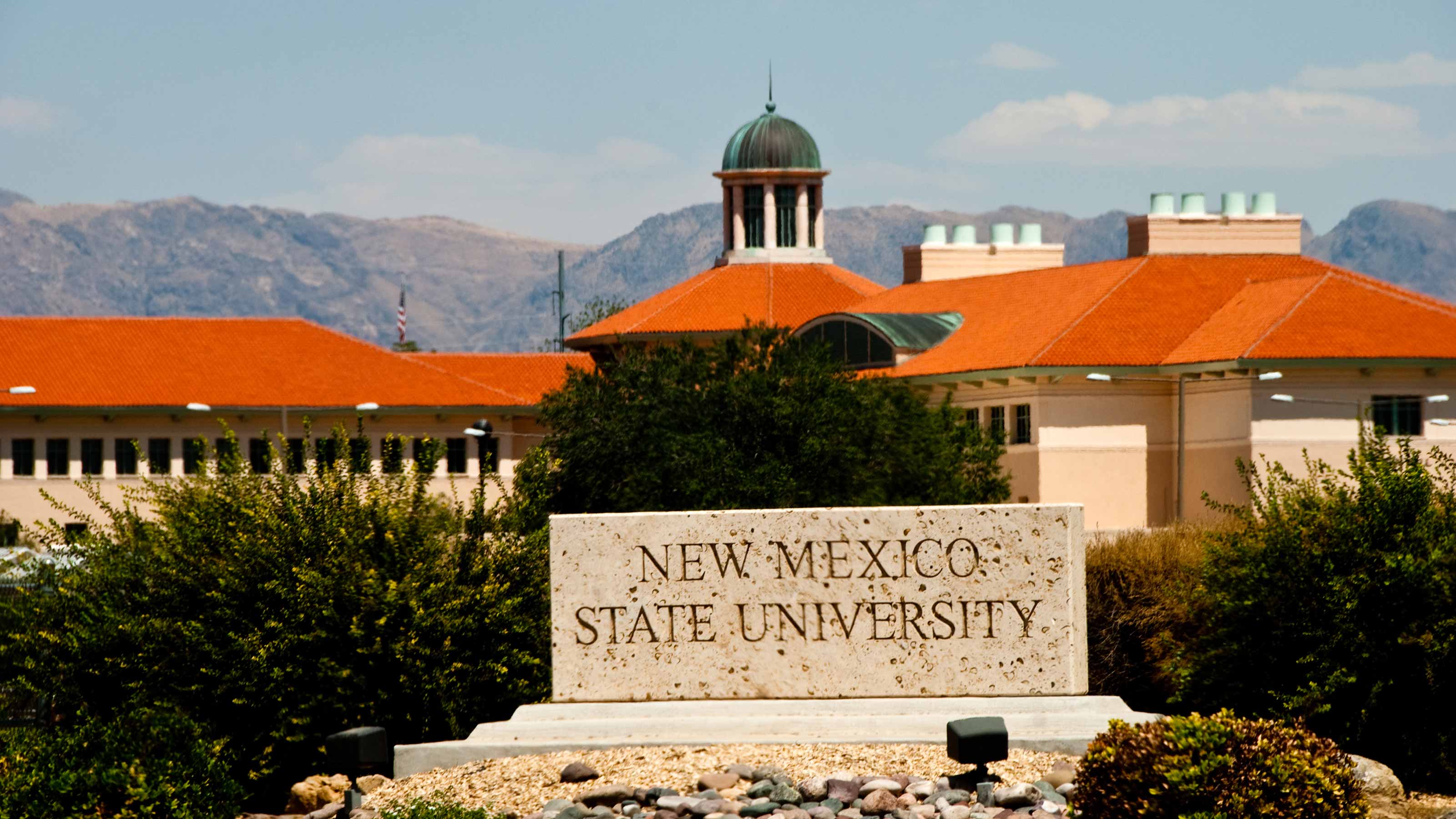
New Mexico
As mandated by New Mexico Administrative Code 5.7.19 and the University of New Mexico, including branch campuses, seniors aged 65 and older may be eligible for a reduced tuition rate for the first ten (10) credit hours registered if they are New Mexico residents and registered on or after the first day of the semester. The discount does not apply to admissions fees or course-specific fees.
New Mexico also offers the Opportunity Scholarship, which provides full tuition benefits for residents, including senior citizens, attending public colleges and universities. This program covers 100% of tuition and fees for various degree programs, making college accessible for older adults.

New York
Many Empire State schools offer free or reduced tuition for senior citizens. Queens College, for example, allows residents 60 and up to audit any course on a space-available basis after completing a Senior Citizen Auditor Application and paying $80, due each semester.
Residents who are at least 60 years of age are also welcome to enroll tuition-free as an “older adult auditor” each semester, for a maximum of two credit-bearing, on-campus courses at Purchase College, part of the State University of New York. Course and space availability may vary. Older adult auditors must pay a $50 special auditor's fee and $25 for a College ID. Course fees, lab and studio fees are extra.
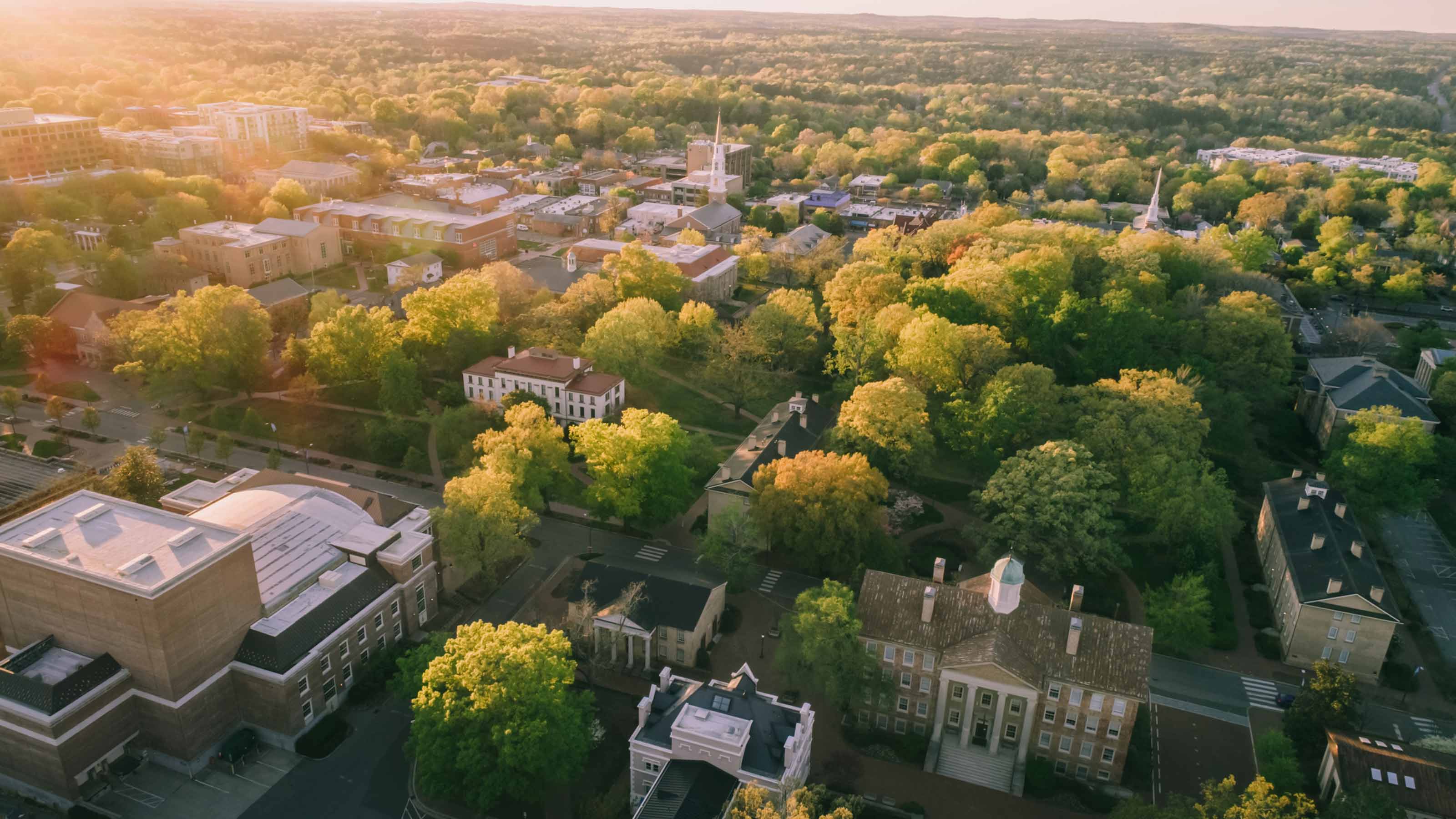
North Carolina
Good news for retirees eyeing North Carolina as a landing pad for their golden years: State residents 65 and older can, on a space-available basis, audit classes tuition-free at North Carolina State University campus, as well as the state’s community colleges. Registration fees are waived, too, but there may be an application fee, depending on the college. Want to earn college credit? What's stopping you?

North Dakota
Unlike many other states, North Dakota doesn’t have a law granting free or nearly free tuition to its older residents. However, with a little digging, you can find tuition-free programs at some of the state’s schools.
Under its Project 65 policy, North Dakota State University enables people 65 and older to audit one course per semester. Tuition and related mandatory fees are waived. Participants need clearance to audit courses from the academic department teaching the course. Since it's an audited course, grades and credit are not given.
Bismarck State College, for example, allows state residents 65 and older to take one course per semester tuition-free on a space-available basis. The waiver does not include fees and other mandatory class expenses.
At Lake Region State College in Devils Lake, students 65 and older can audit classroom courses on a space-available basis but must pay for fees and mandatory class materials. Contact the school for more information.
There may be other colleges and universities in North Dakota that offer cheap or free tuition for seniors, so take some time and look around. It could pay off.

Ohio
All of Ohio’s public universities and colleges, including community colleges, allow residents age 60 and older to audit courses tuition-free, if space is available. Instructors of individual courses must approve your application, and you are also responsible for any course fees, such as lab fees and other mandatory course materials.
State law permits schools to forbid enrollment in certain classes “in which physical demands upon students are inappropriate for imposition upon persons 60 years of age or older.” (That wouldn’t rule out the physical education courses I took in college — Bowling, Ping-Pong, and Pool).
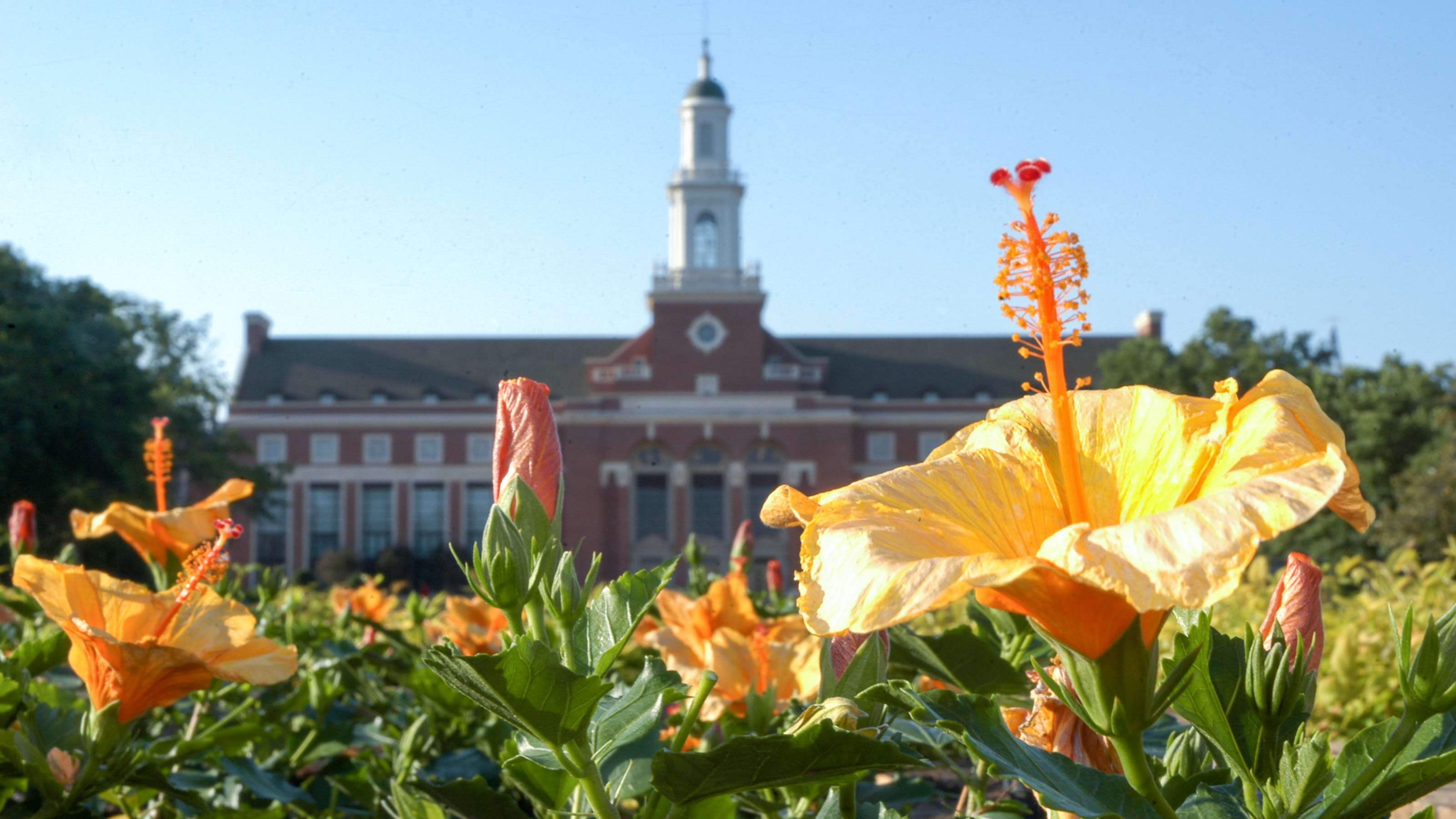
Oklahoma
Oklahomans age 65 and older can audit classes (meaning you receive no class credit) at the state’s public colleges and universities tuition-free, provided there’s space available. Fees are also waived. For example, at Tulsa Community College, state residents aged 65+ can audit courses with a tuition waiver if space is available.
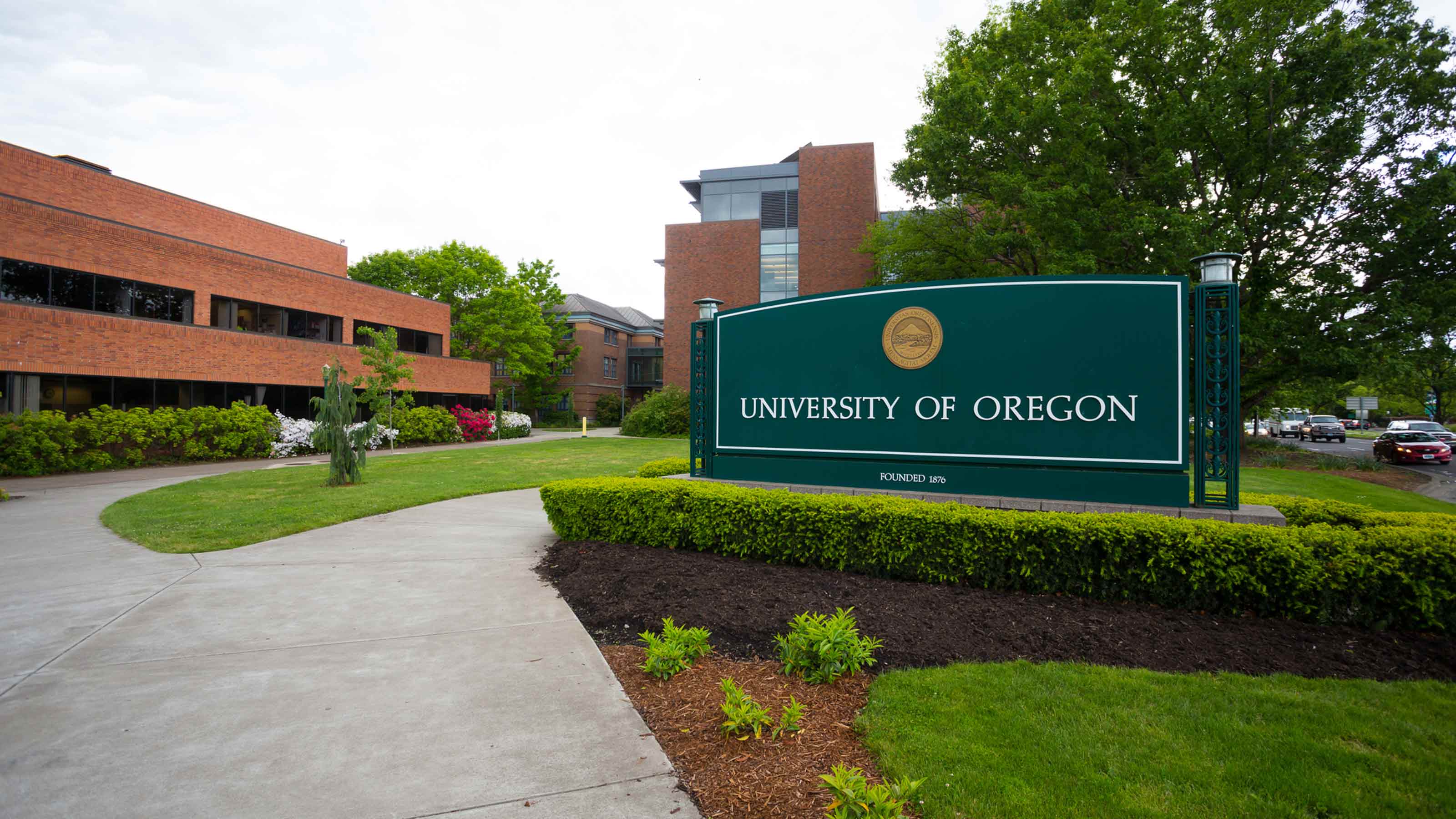
Oregon
All universities and colleges, including community colleges, allow state residents 65 and older to audit select courses tuition-free if space is available and the course instructor approves. This includes both Oregon State University and the University of Oregon. You must pay any mandatory course fees. Some courses, including creative writing, can only be taken by older auditors in the summer. The auditing student must be registered for eight credits or fewer per term and the course must be a lower-division course.
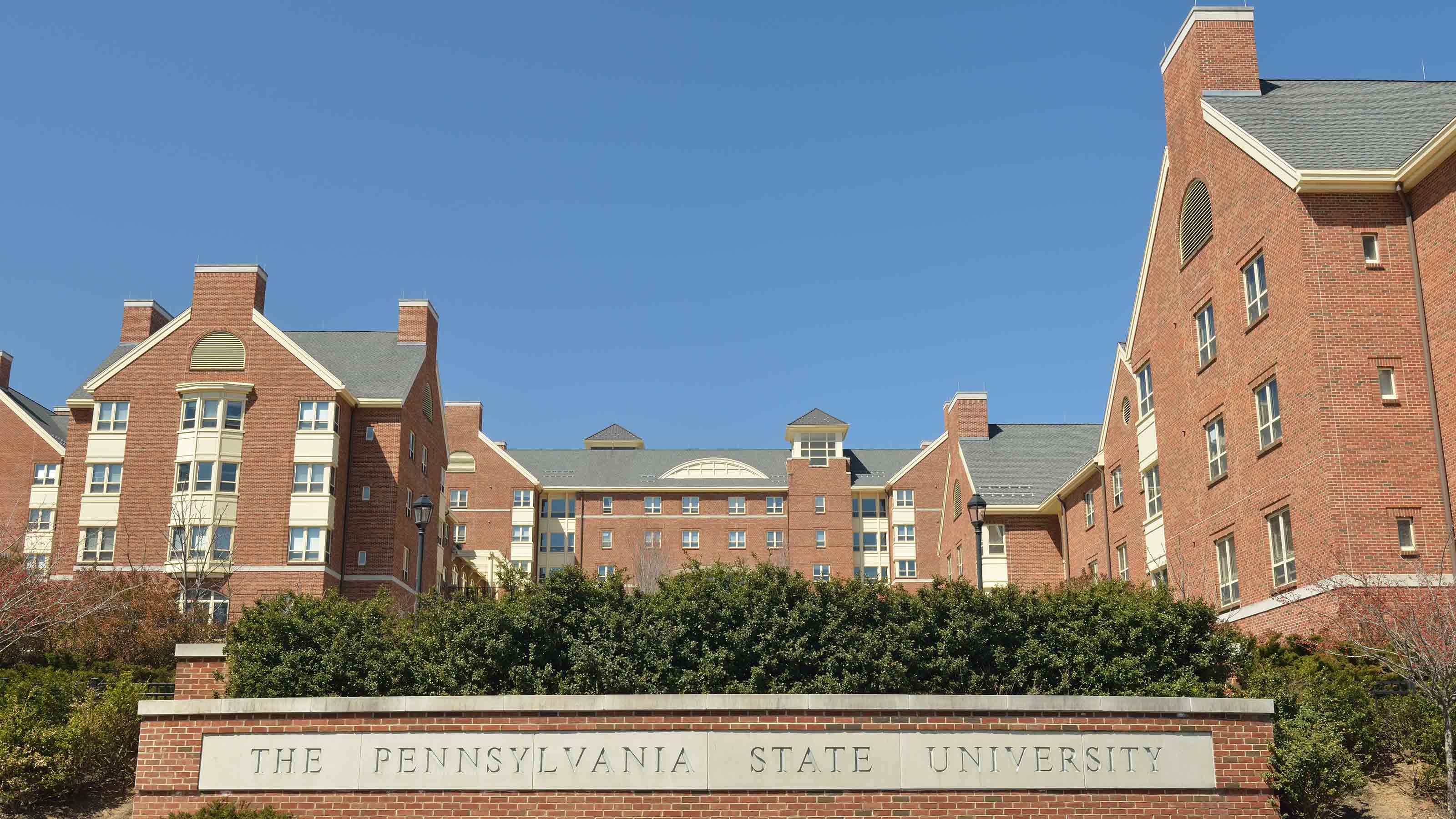
Pennsylvania
Pennsylvania has no sweeping law on its books that allows older students to take classes tuition-free. However, hunt a little, and you can find some. For example, the Pennsylvania State University system offers a Go-60 program, where state residents 60 and up, retired or working no more than 20 hours a week, can take up to six credits each semester, for credit or audit, tuition-free.
Many community colleges in the state also offer free tuition to older students. Bucks County Community College, near Philadelphia, and the Pennsylvania Institute of Technology allow county residents 65 and older to enroll tuition-free in for-credit courses on a space-available basis. There may be registration fees you’ll have to pay.

Rhode Island
The University of Rhode Island and the Community College of Rhode Island offer tuition waivers to lower-income state residents age 60 and older. According to the University of Rhode Island, older students must pay all other fees and can either audit classes (and get no grade) or take the course for credit.
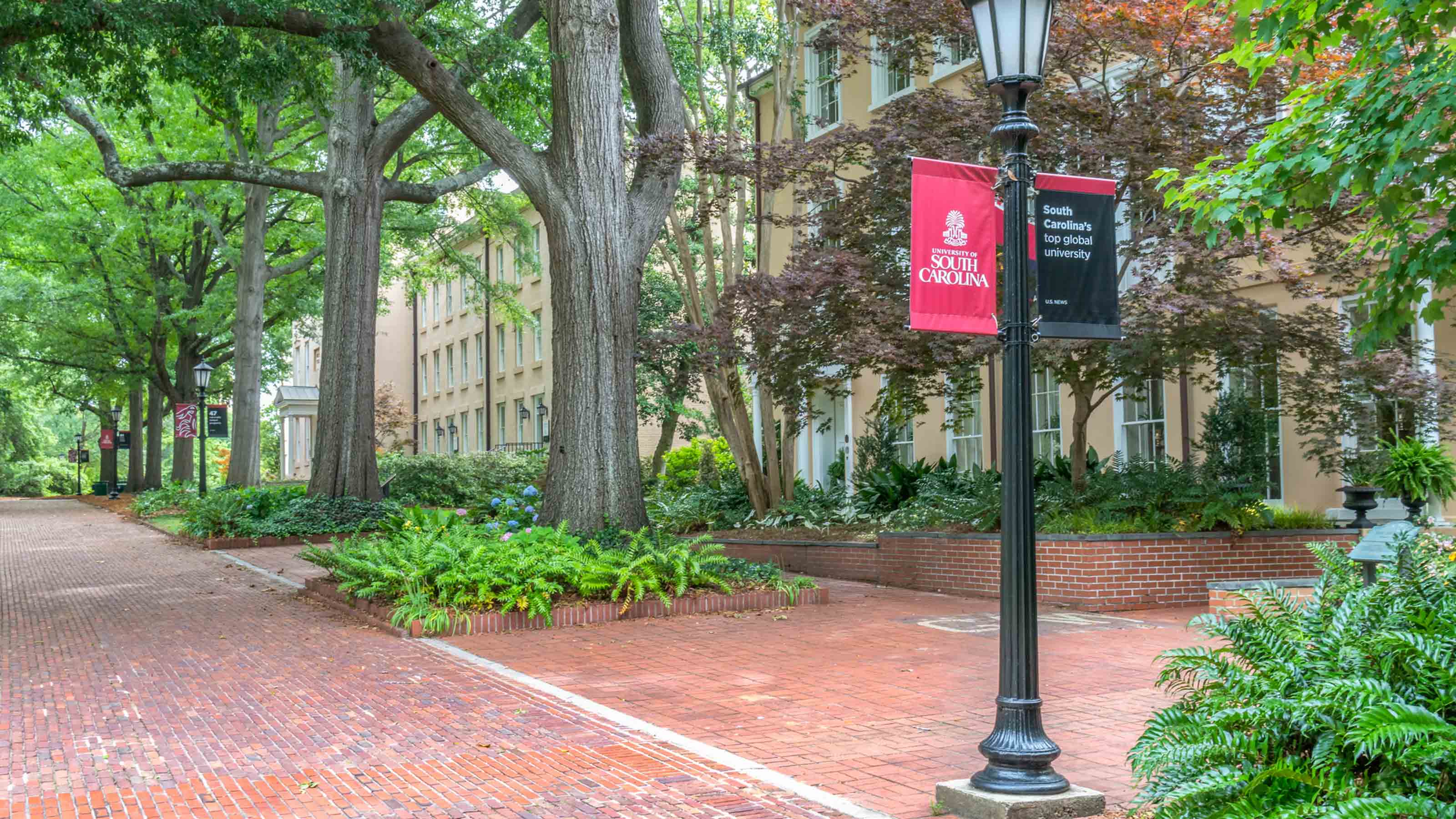
South Carolina
All South Carolina residents 60 and older can attend any state-funded college tuition-free on a space-available basis. This includes courses taken for credit or audited. You’ll have to apply for enrollment to the school you are interested in attending, and you’ll be on the hook for any course fees, textbooks and other mandatory materials.

South Dakota
State residents 65 and older get a 45% discount on tuition at participating state colleges, including campuses of South Dakota State University, the University of South Dakota, South Dakota School of Mines and Technology, Northern State University, Dakota State University and Black Hills State University.
The discount applies only to tuition, but not to fees or other expenses associated with the courses. You can take classes for credit or simply audit them. Online courses are not covered.

Tennessee
Retiring in Tennessee and establishing residency has its benefits if you’re hoping to extend your education at a ridiculously low cost. All state-supported universities and colleges (including community colleges) allow residents 65 and older (and possibly 55 and older if you qualify) to take courses for credit tuition-free. Plus, all other fees (maintenance, activity, or student activity fees) are also waived.
For instance, if you're over 60 years of age, you can audit courses, or if older, you may audit courses at East Tennessee State University without the payment of maintenance or program service fees. You will be responsible for any online or applicable course fees. And, if you've never attended ETSU, you will have to pay a one-time application fee.

Texas
Texas residents 65 and older can take as many as six credit hours per semester at Texas state-funded colleges and universities, such as Texas A&M University, Texas Tech University and the University of Texas at Dallas. You can also audit as many as six hours of courses per semester. Fees and other costs (textbooks, labs, parking, etc.) are the responsibility of the student.
For those wanting a more tailored experience, Rice University offers low-priced classes to seniors through its Glasscock School of Continuing Studies.
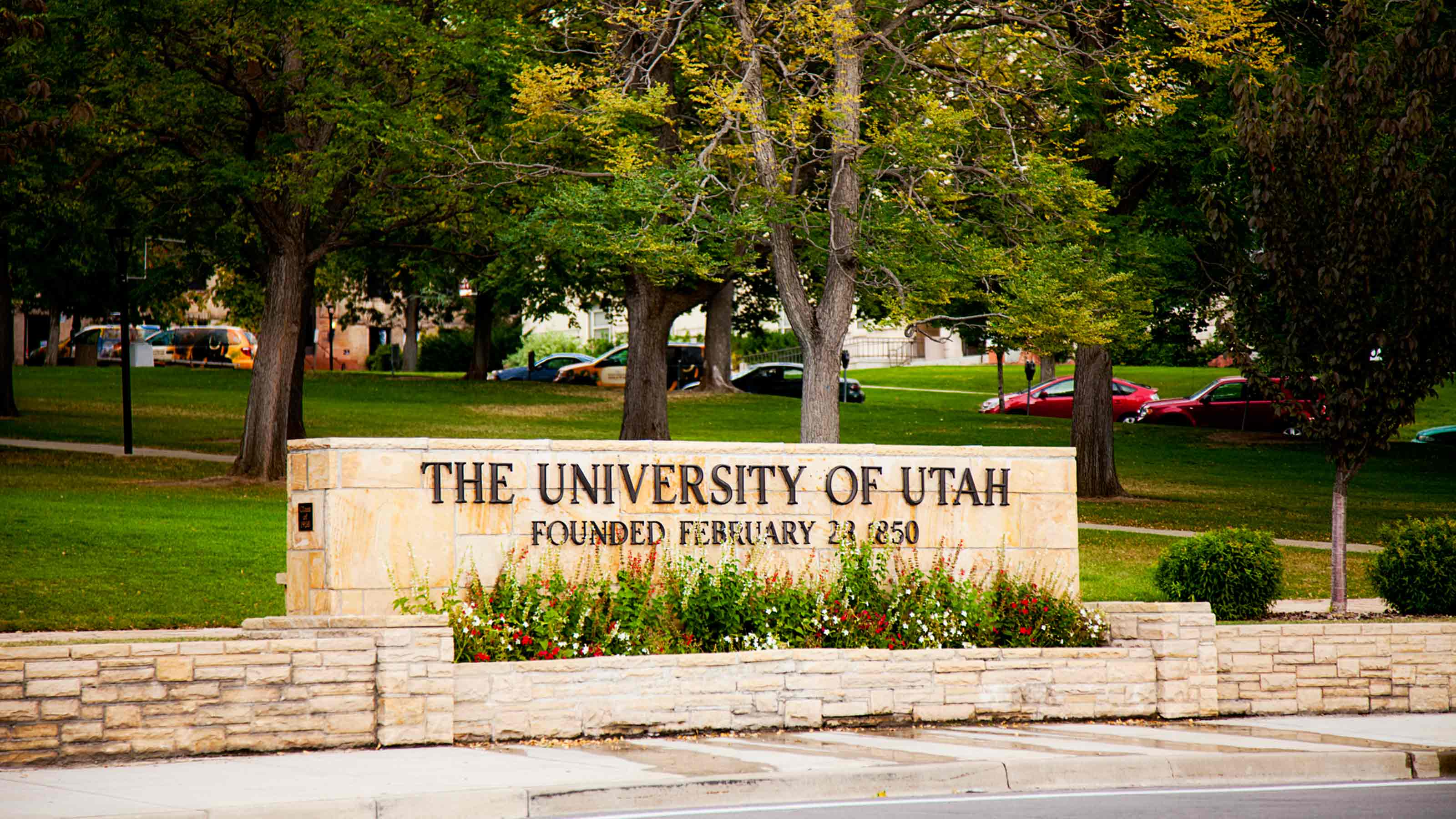
Utah
Utah law states that residents 62 and older can enroll in regularly scheduled classes (space permitting) at Utah colleges and universities and are exempt from tuition and other charges. These are audited courses, per the University of Utah, but you will be required to pay $25 per semester (plus any special fees). You’ll also need a University of Utah student card to use the library and such, and that’s $10 for your first card. Registration fees may vary per institution. For example, Salt Lake Community College only charges a tuition fee of $10 per semester.
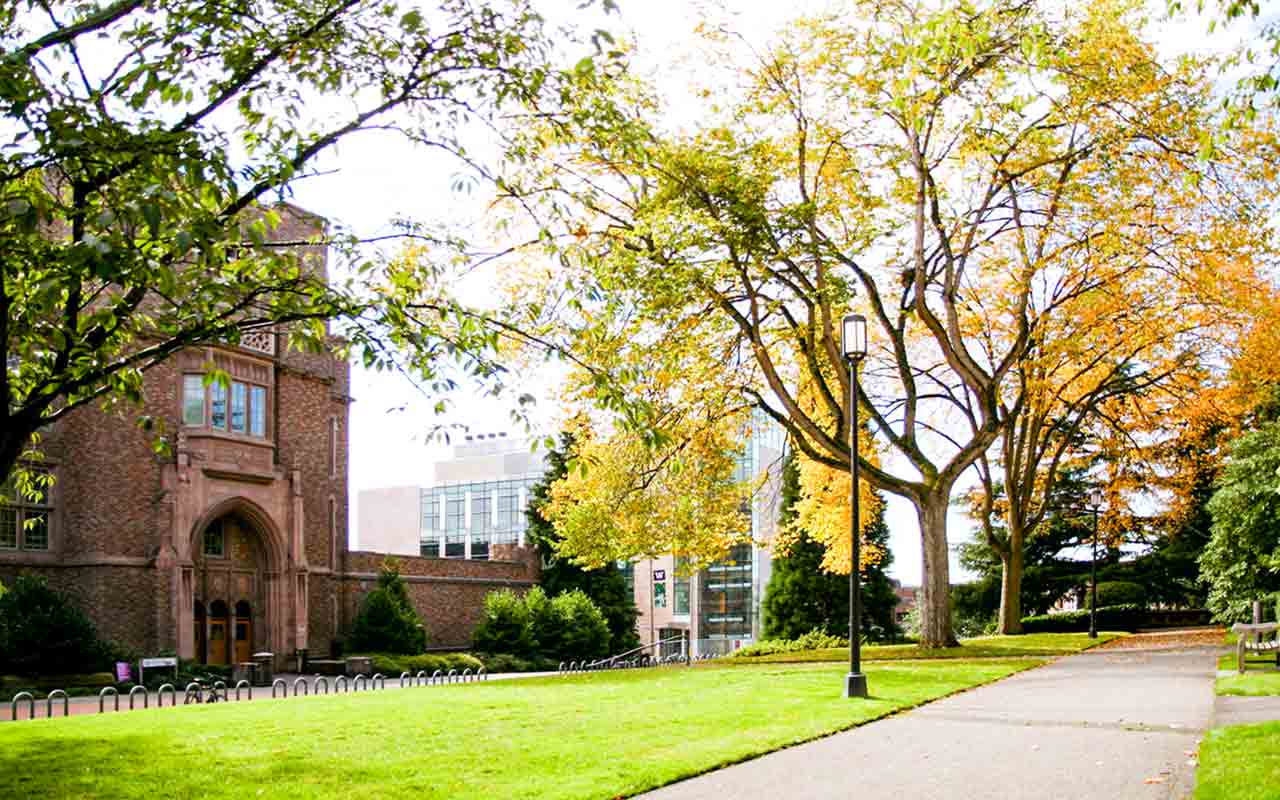
Vermont
Vermont residents 65 and older can audit tuition-free one course per semester at a college in the Vermont State Colleges System, including Castleton State College, Community College of Vermont, Northern Vermont University and Vermont Technical College.
If you want to take more classes than that, you can. You’ll get a 50% discount off the regular tuition rate for each course and can earn credits that count toward an undergraduate degree.
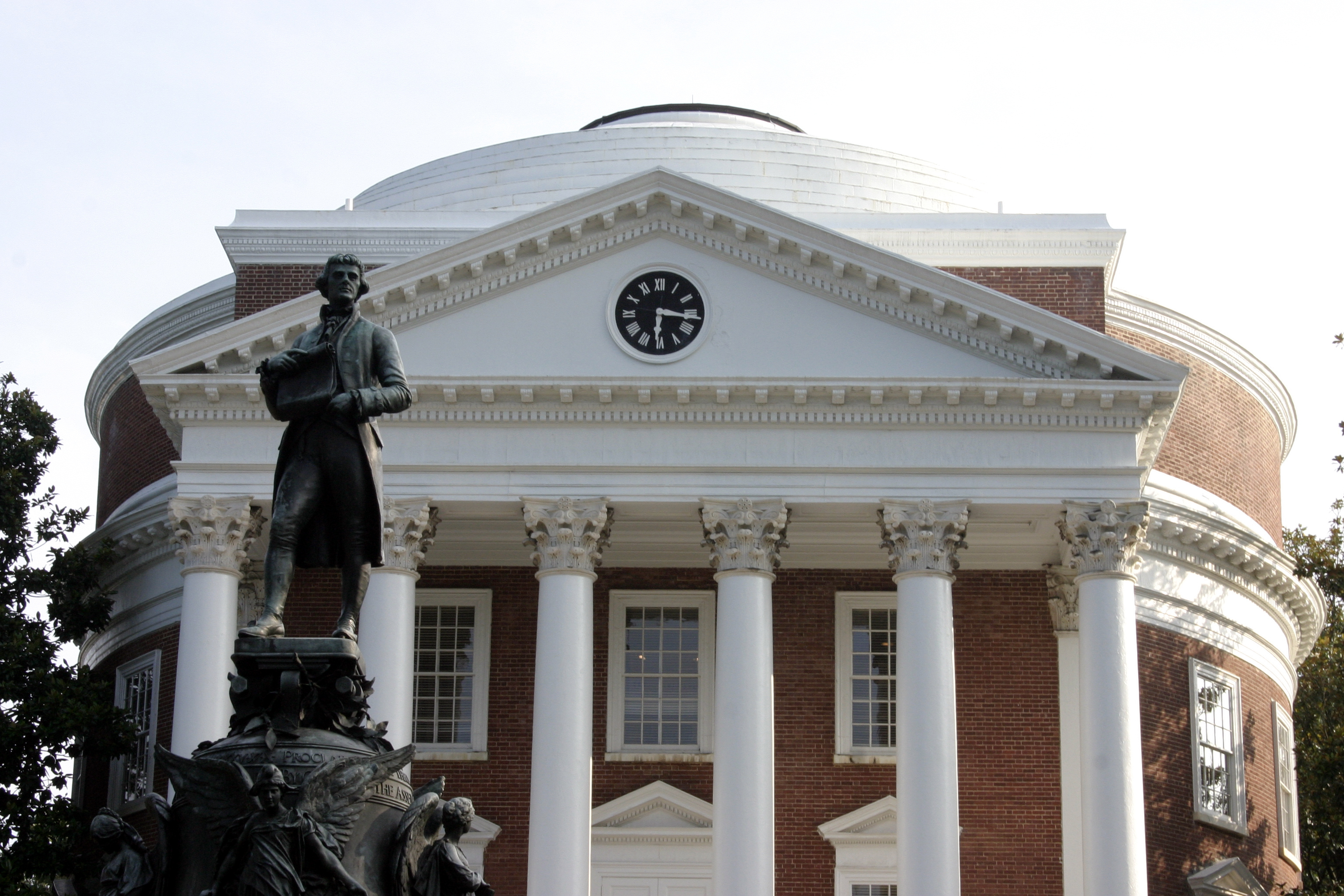
Virginia
The State Council of Higher Education for Virginia spells out that under Virginia law, “senior citizens” age 60 and over can audit up to three non-credit courses per term, quarter, or semester tuition-free at public colleges and universities.
The senior citizen must meet admission requirements and may enroll only if space is available after tuition-paying students have vied for the class. The colleges may make individual exceptions to these procedures for any senior citizen who has completed 75% of the requirements for a degree.
All seniors with tuition waivers have to buy their textbooks and pay all fees for course materials, according to the Northern Virginia Community College system.

Washington
Washington state law mandates its state universities, regional universities, the Evergreen State's colleges, and Washington’s community colleges and tech schools “waive, in whole or in part, the tuition and services and activities fees for students” age 60 and older. This refers to for-credit courses.
The law also says state schools can charge a nominal fee for senior citizens auditing a course at schools like South Seattle College and Bellevue College. At Spokane Falls Community College, the fee is right around $2.50 per class, so hey, it varies depending on the institution.
As the University of Washington’s website points out, as non-matriculated students, senior auditors are admitted to classes (up to six credit hours per semester). However, the senior auditors do not take tests, write papers, or participate in class discussions. Some courses are off-limits.
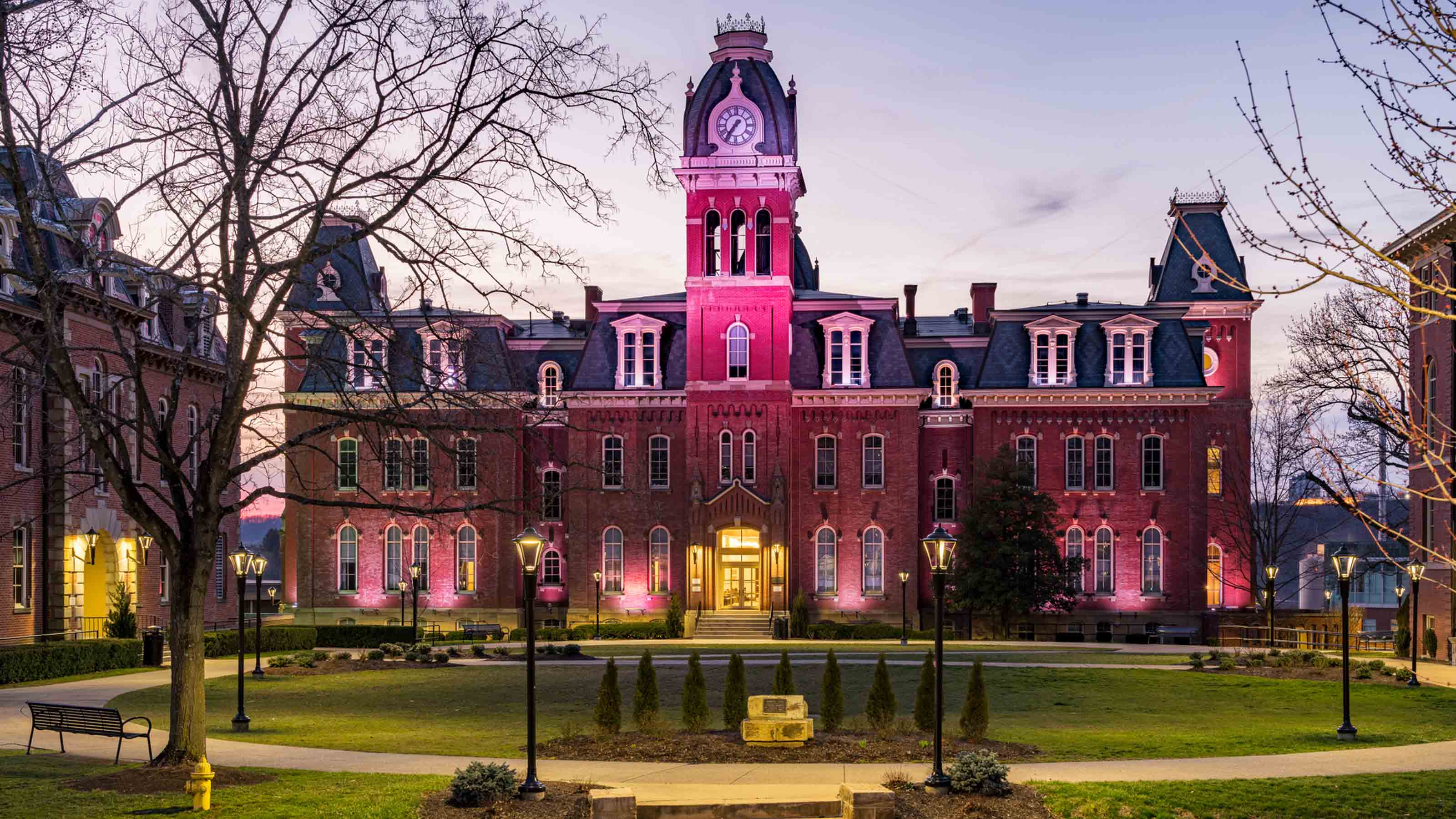
West Virginia
West Virginia law mandates that the state’s public colleges and universities offer citizens age 65 and older the opportunity to attend courses at a reduced tuition and fee level, whether for credit or non-credit.
That same code limits total tuition and fees charged for non-credit courses to not exceed $50. Classes that are for credit cannot exceed 50% of the normal rates charged for tuition to in-state residents.
At West Virginia University, students who submit the senior citizen's application are admitted as non-degree students and may take WVU courses for reduced tuition and fees. Indicate on the form whether you want credit. There’s a small application fee (which may go away in the future). The Osher Lifelong Learning Institute at WVU (or OLLI at WVU) also provides programs and educational opportunities designed for adults 50 and over.
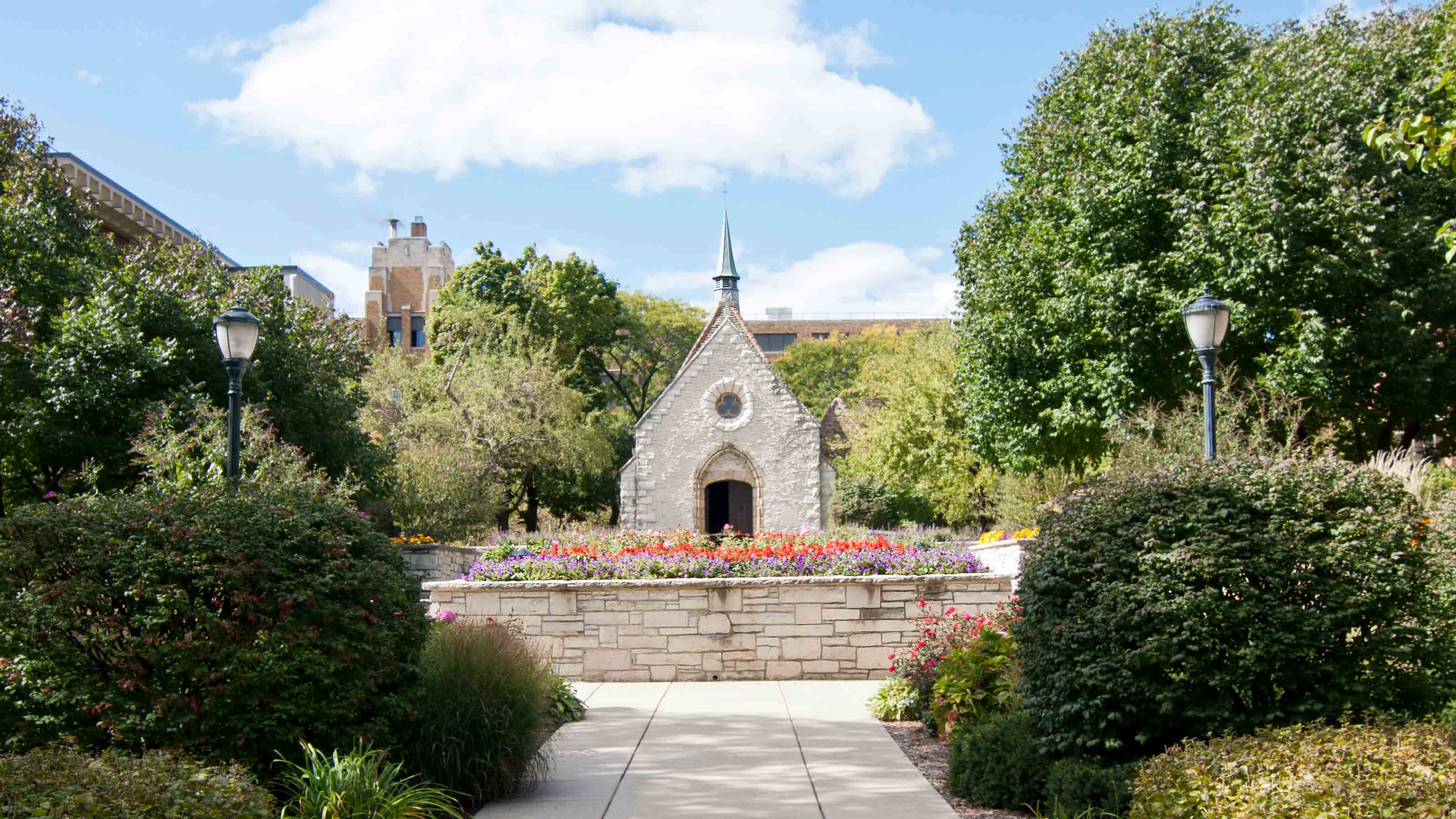
Wisconsin
The University of Wisconsin allows residents 60 and older to audit classes tuition-free on a space-available basis.
You’ll need to seek the instructor’s approval, and you can provisionally attend the class until the add/drop deadline reveals whether space is available. You’re responsible for lab fees, textbooks, and other course materials.
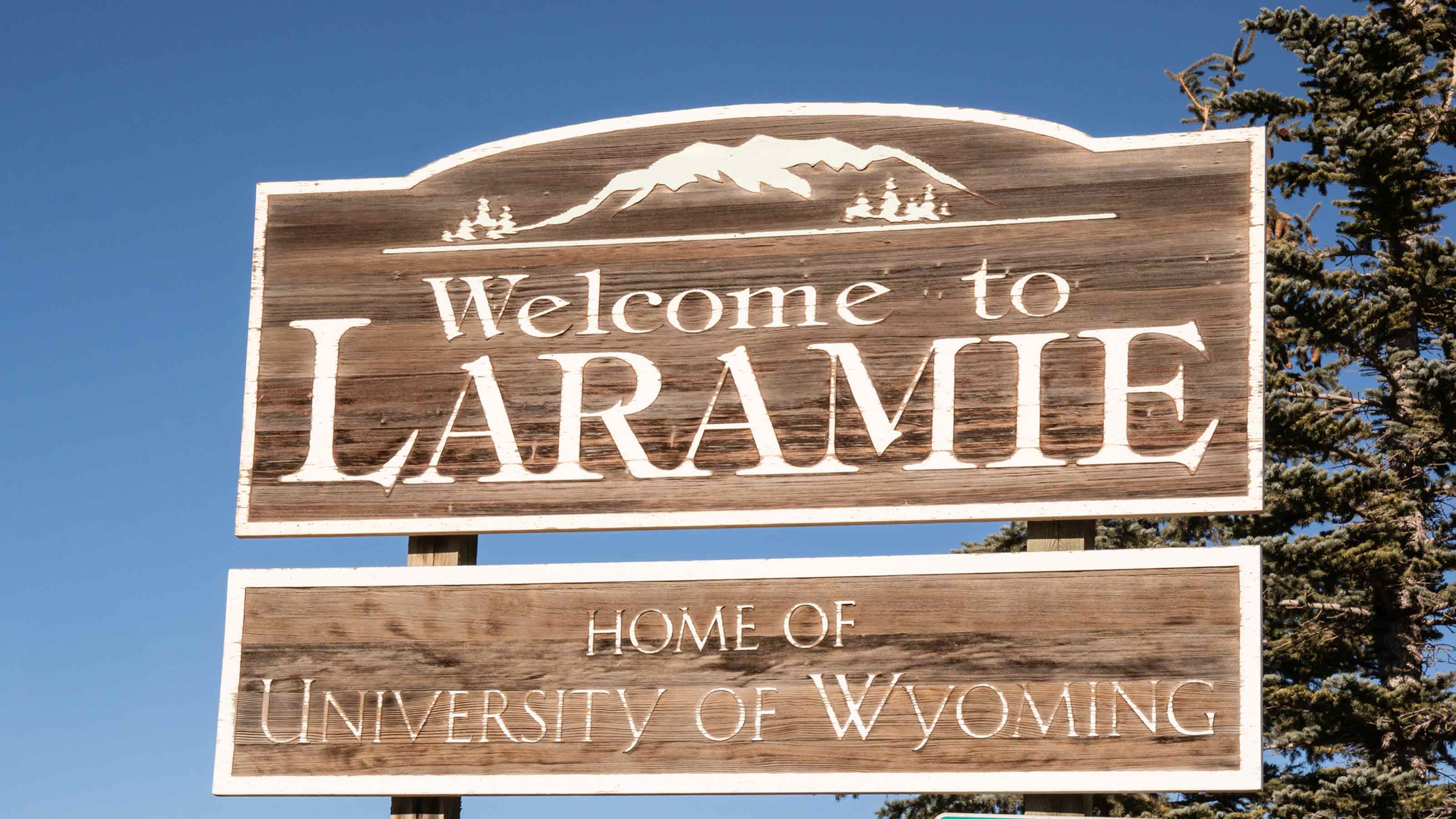
Wyoming
Wyoming residents 65 and older can attend classes at the University of Wyoming on a space-available basis at no cost. You must be admitted to the university and show proof of age and state residence.
Some of Wyoming’s community colleges also offer special incentives for retirees. For example, Laramie County Community College offers students aged 60 and over the opportunity to enroll in for-credit courses at a discounted rate of 20% of the resident tuition rate plus all course fees. To qualify, the student must bring his/her driver's license to the Student Hub at the beginning of the semester.
Related Content
Profit and prosper with the best of Kiplinger's advice on investing, taxes, retirement, personal finance and much more. Delivered daily. Enter your email in the box and click Sign Me Up.

Bob was Senior Editor at Kiplinger.com for seven years and is now a contributor to the website. He has more than 40 years of experience in online, print and visual journalism. Bob has worked as an award-winning writer and editor in the Washington, D.C., market as well as at news organizations in New York, Michigan and California. Bob joined Kiplinger in 2016, bringing a wealth of expertise covering retail, entertainment, and money-saving trends and topics. He was one of the first journalists at a daily news organization to aggressively cover retail as a specialty and has been lauded in the retail industry for his expertise. Bob has also been an adjunct and associate professor of print, online and visual journalism at Syracuse University and Ithaca College. He has a master’s degree from Syracuse University’s S.I. Newhouse School of Public Communications and a bachelor’s degree in communications and theater from Hope College.
-
 Stocks Sink With Alphabet, Bitcoin: Stock Market Today
Stocks Sink With Alphabet, Bitcoin: Stock Market TodayA dismal round of jobs data did little to lift sentiment on Thursday.
-
 Betting on Super Bowl 2026? New IRS Tax Changes Could Cost You
Betting on Super Bowl 2026? New IRS Tax Changes Could Cost YouTaxable Income When Super Bowl LX hype fades, some fans may be surprised to learn that sports betting tax rules have shifted.
-
 How Much It Costs to Host a Super Bowl Party in 2026
How Much It Costs to Host a Super Bowl Party in 2026Hosting a Super Bowl party in 2026 could cost you. Here's a breakdown of food, drink and entertainment costs — plus ways to save.
-
 3 Reasons to Use a 5-Year CD As You Approach Retirement
3 Reasons to Use a 5-Year CD As You Approach RetirementA five-year CD can help you reach other milestones as you approach retirement.
-
 Your Adult Kids Are Doing Fine. Is It Time To Spend Some of Their Inheritance?
Your Adult Kids Are Doing Fine. Is It Time To Spend Some of Their Inheritance?If your kids are successful, do they need an inheritance? Ask yourself these four questions before passing down another dollar.
-
 The 4 Estate Planning Documents Every High-Net-Worth Family Needs (Not Just a Will)
The 4 Estate Planning Documents Every High-Net-Worth Family Needs (Not Just a Will)The key to successful estate planning for HNW families isn't just drafting these four documents, but ensuring they're current and immediately accessible.
-
 We're 62 With $1.4 Million. I Want to Sell Our Beach House to Retire Now, But My Wife Wants to Keep It and Work Until 70.
We're 62 With $1.4 Million. I Want to Sell Our Beach House to Retire Now, But My Wife Wants to Keep It and Work Until 70.I want to sell the $610K vacation home and retire now, but my wife envisions a beach retirement in 8 years. We asked financial advisers to weigh in.
-
 How to Add a Pet Trust to Your Estate Plan: Don't Leave Your Best Friend to Chance
How to Add a Pet Trust to Your Estate Plan: Don't Leave Your Best Friend to ChanceAdding a pet trust to your estate plan can ensure your pets are properly looked after when you're no longer able to care for them. This is how to go about it.
-
 Want to Avoid Leaving Chaos in Your Wake? Don't Leave Behind an Outdated Estate Plan
Want to Avoid Leaving Chaos in Your Wake? Don't Leave Behind an Outdated Estate PlanAn outdated or incomplete estate plan could cause confusion for those handling your affairs at a difficult time. This guide highlights what to update and when.
-
 I'm a Financial Adviser: This Is Why I Became an Advocate for Fee-Only Financial Advice
I'm a Financial Adviser: This Is Why I Became an Advocate for Fee-Only Financial AdviceCan financial advisers who earn commissions on product sales give clients the best advice? For one professional, changing track was the clear choice.
-
 65 or Older? Cut Your Tax Bill Before the Clock Runs Out
65 or Older? Cut Your Tax Bill Before the Clock Runs OutThanks to the OBBBA, you may be able to trim your tax bill by as much as $14,000. But you'll need to act soon, as not all of the provisions are permanent.


